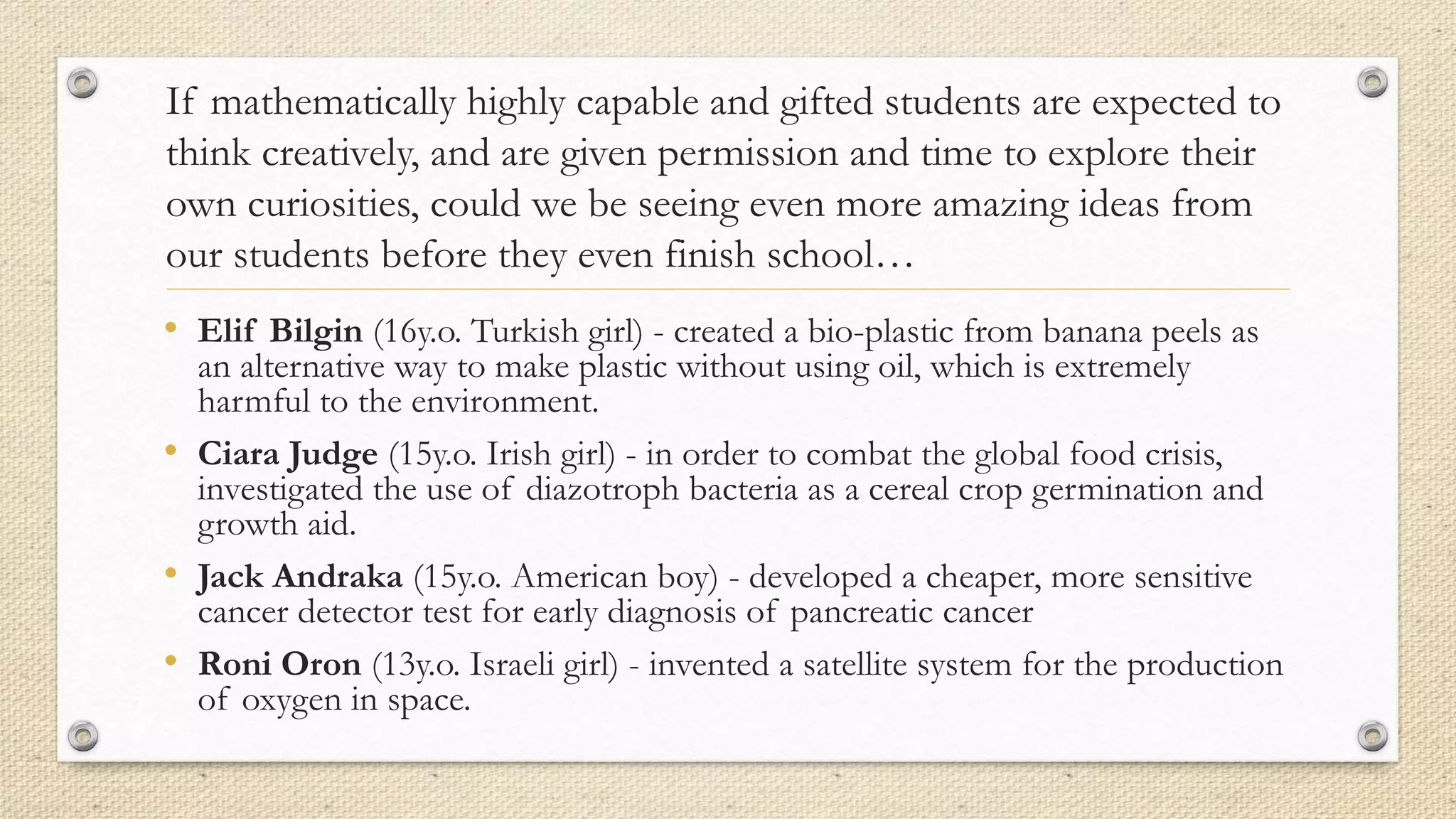The document discusses the characteristics and needs of mathematically gifted students, emphasizing that they require unique support different from their peers due to their advanced cognitive abilities. It highlights the importance of fostering a growth mindset, encouraging problem-solving, creative thinking, and resilience in the face of challenges, as well as the necessity for educators to tailor experiences to the individual strengths and interests of these students. The document also critiques current educational practices that may hinder gifted students from fully exploring their potential.
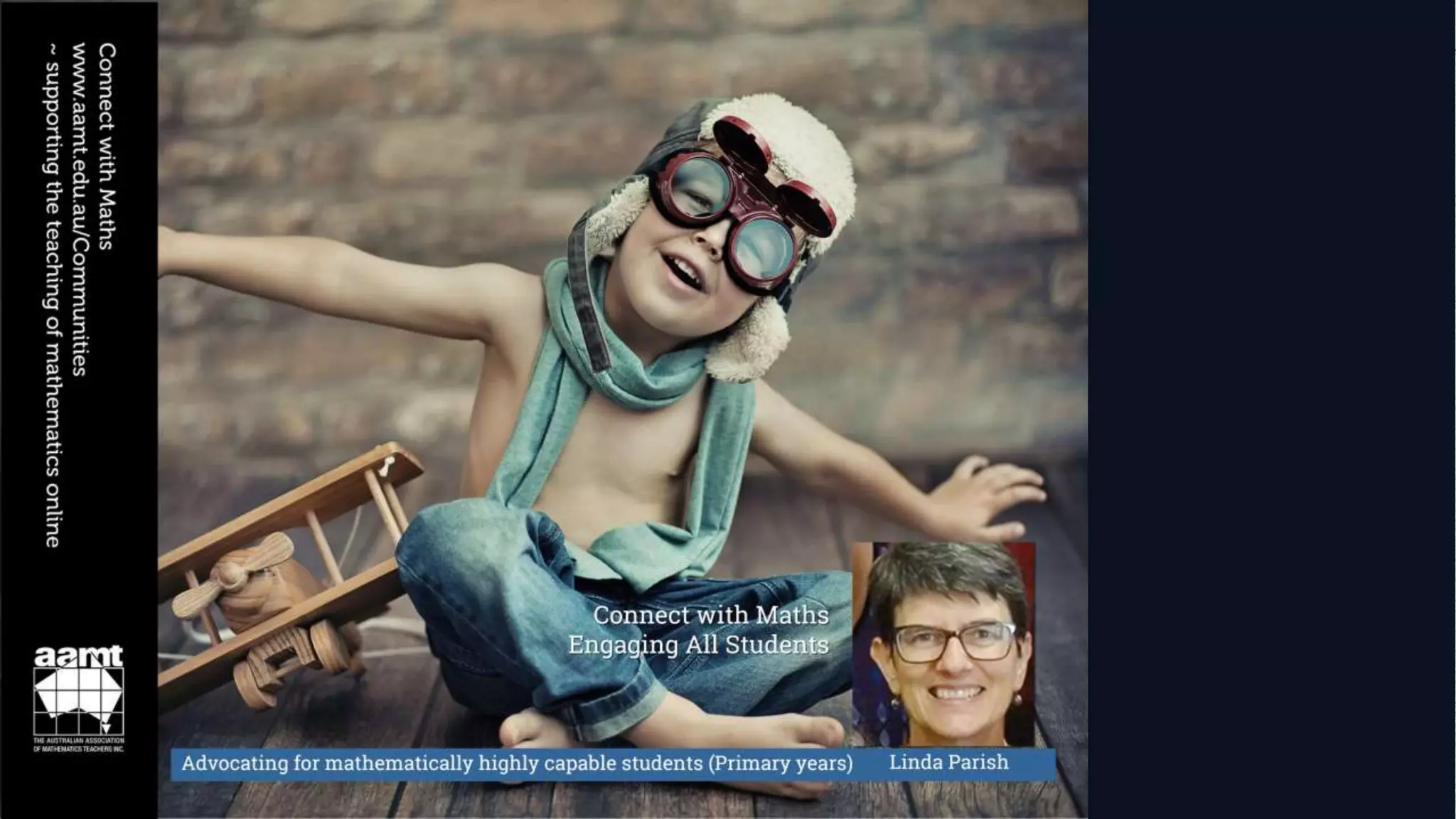
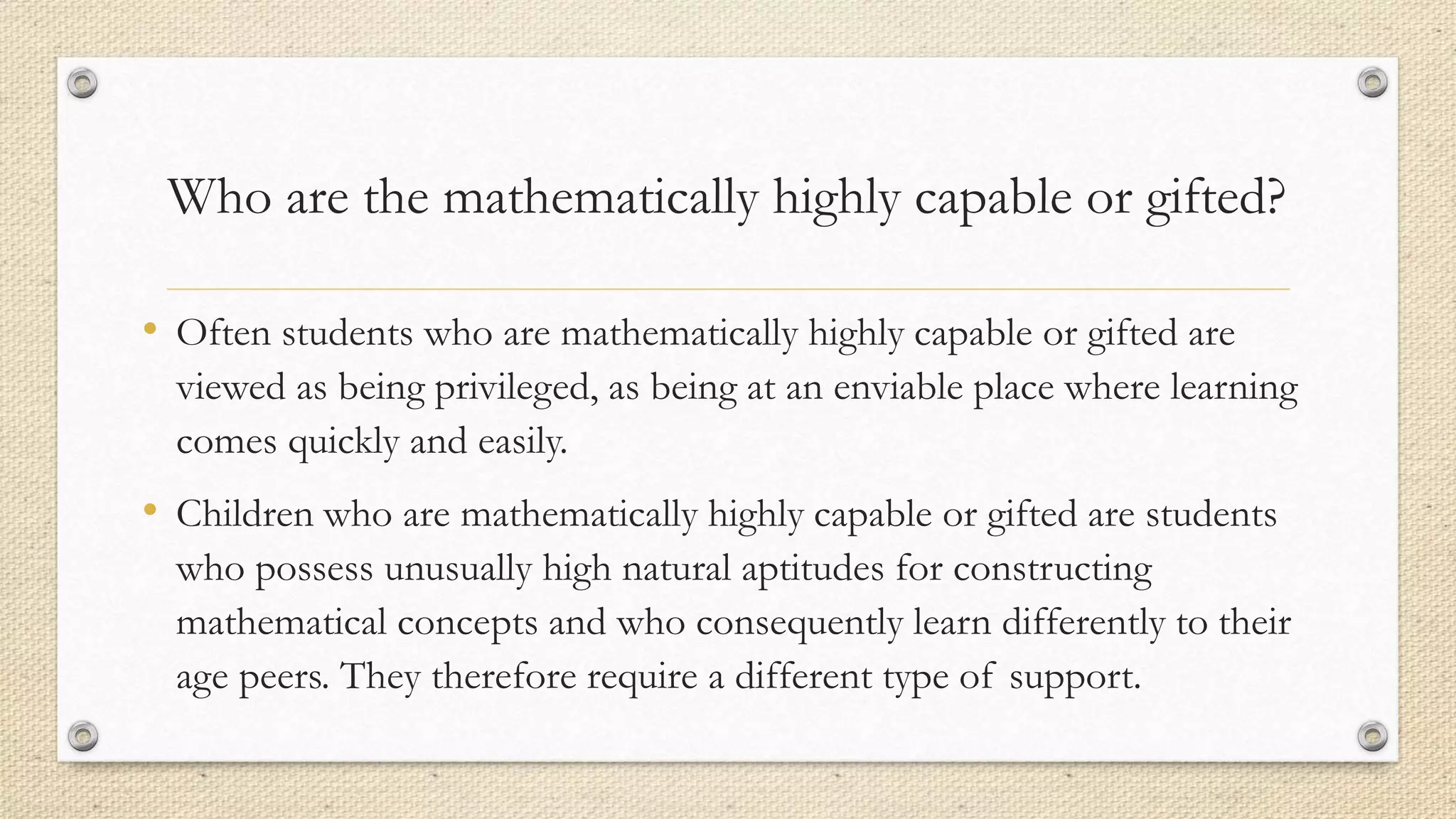
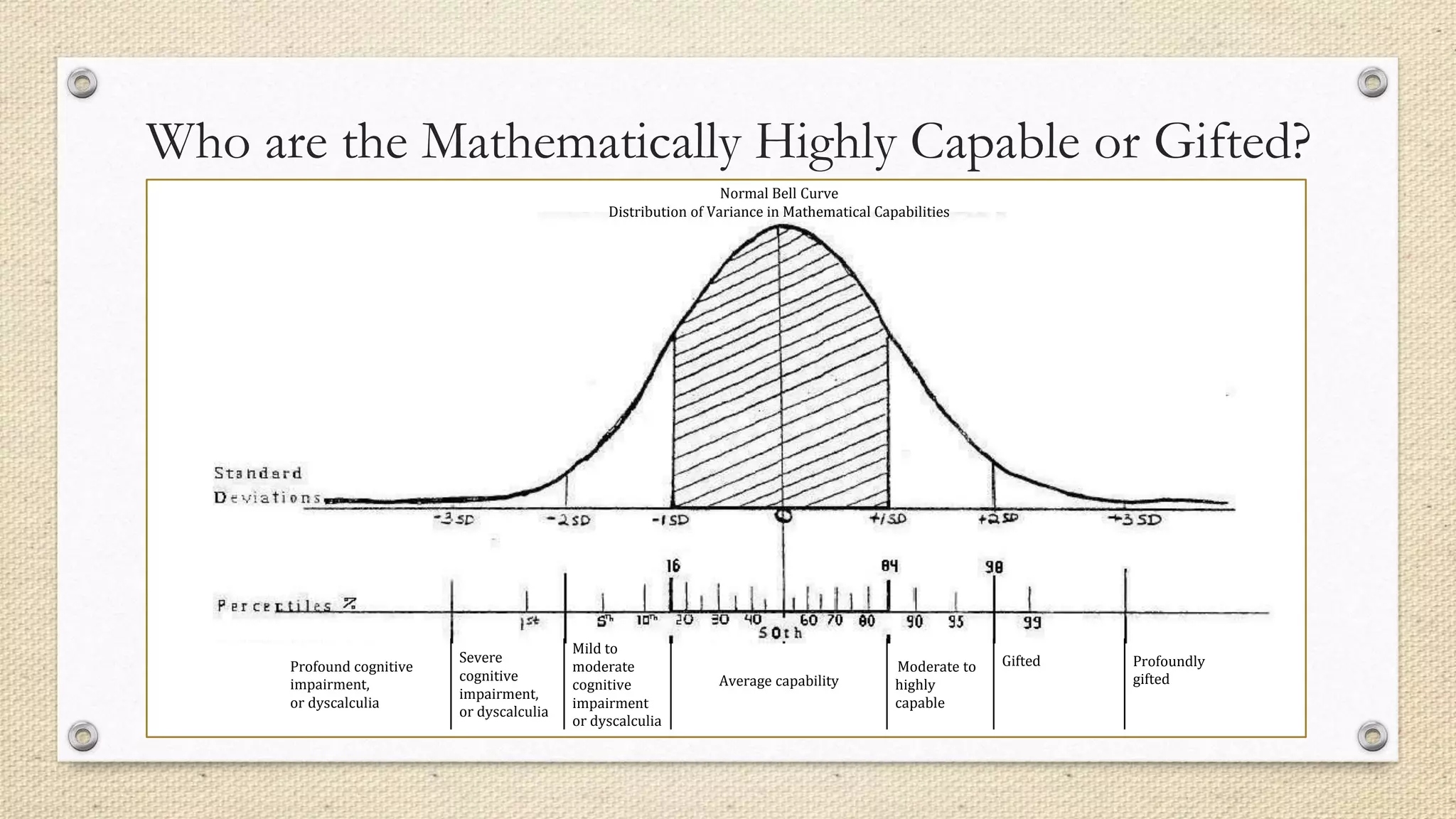
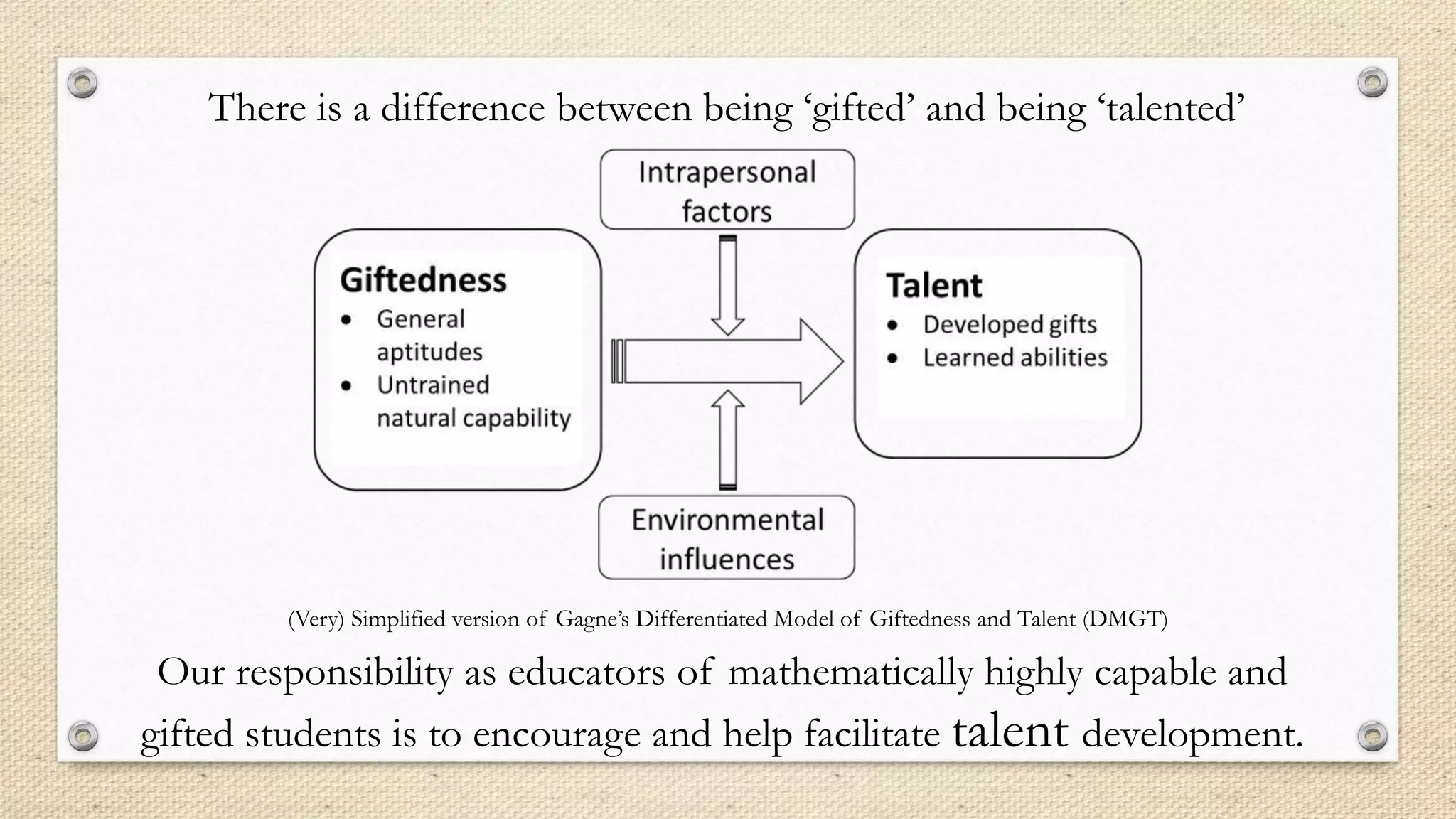
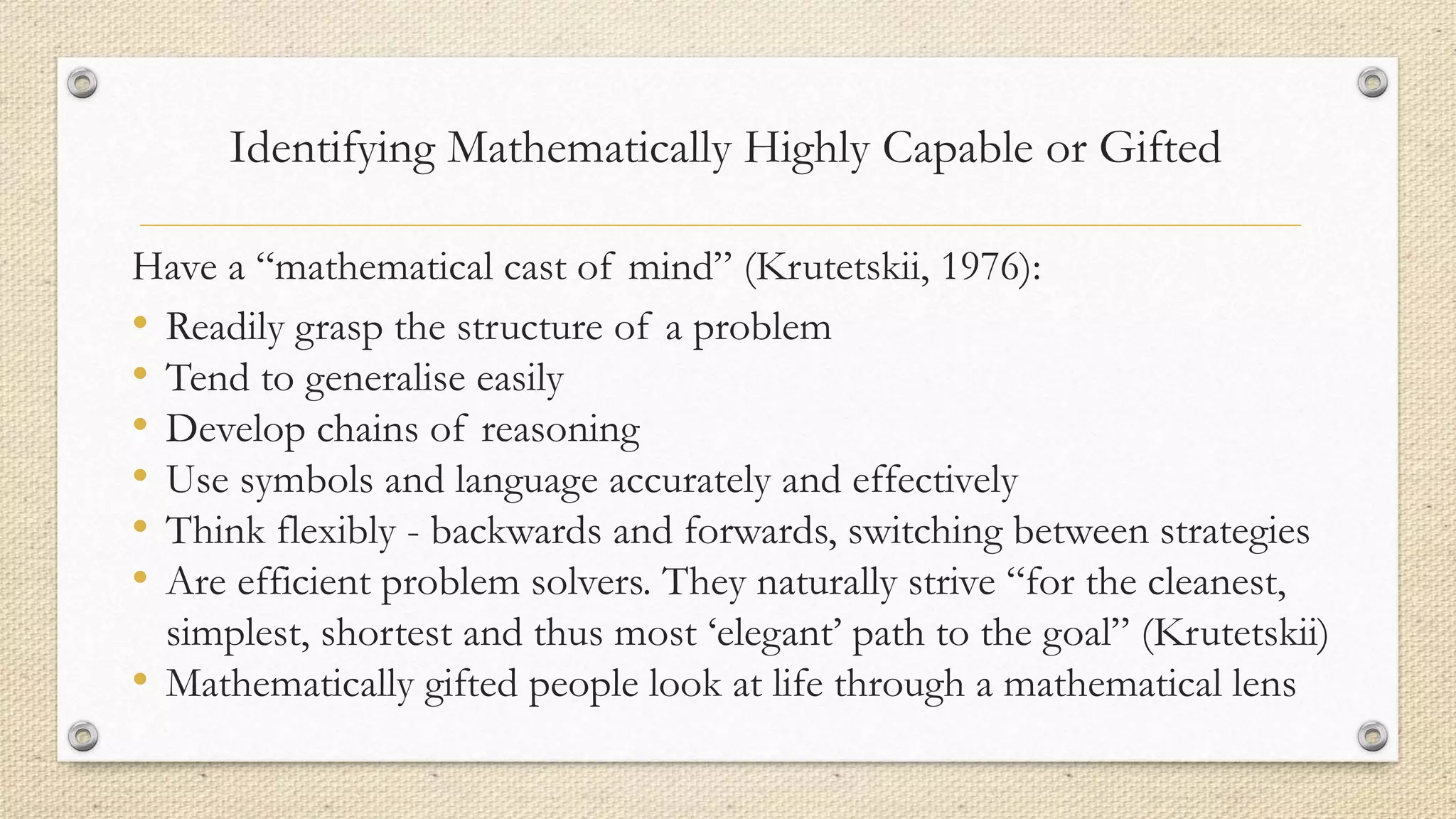
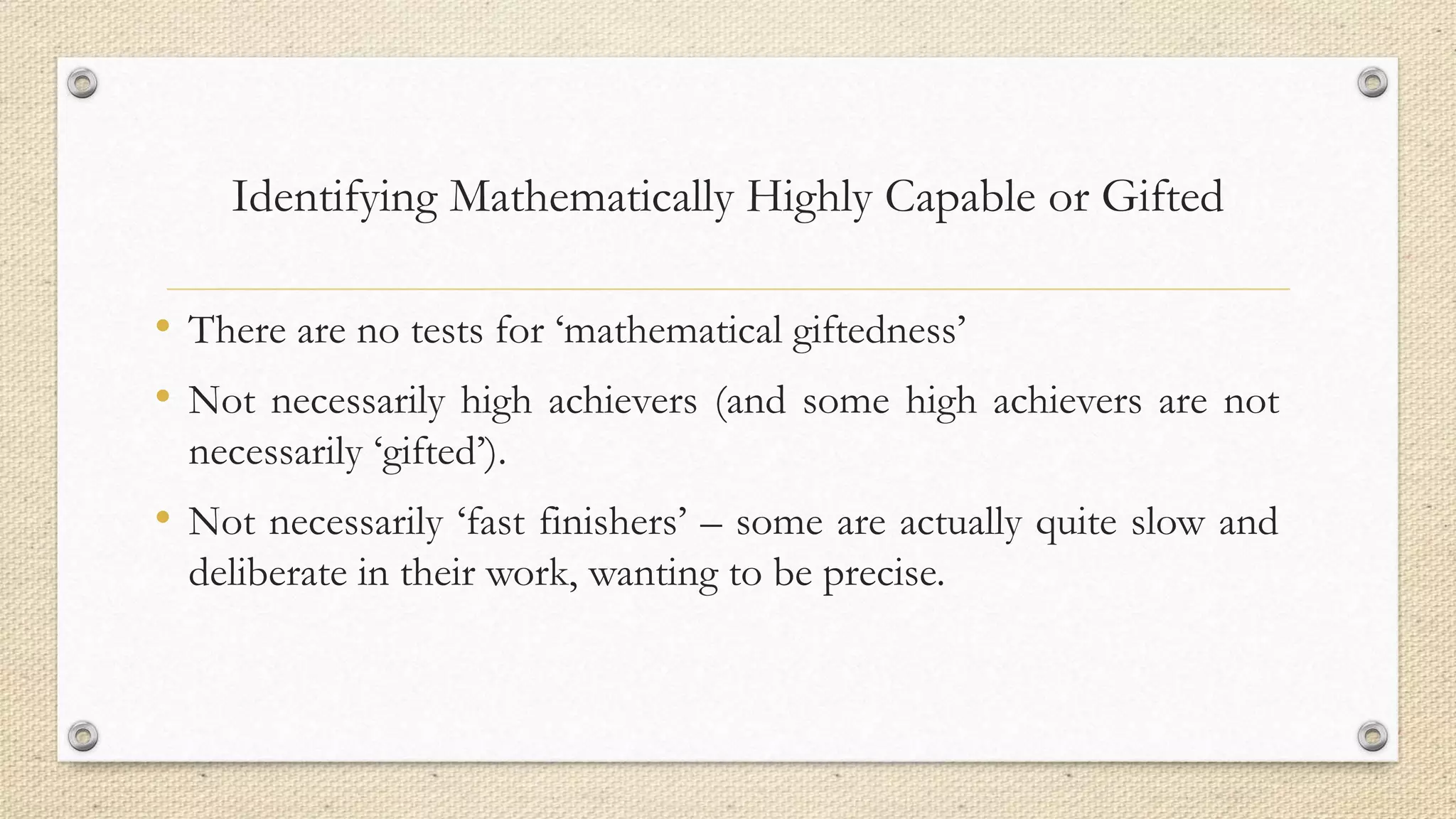
![Using problem solving to identify mathematically gifted
students:
• “In one task, the researcher gave K [a 9-year-old careless, not highly
motivated, average maths student] one sheet from a newspaper with
pages numbered 35, 36, 109, 110. From this K was able to quickly
work out how many pages there were in the newspaper.”
(Haylock & Thangata, 2007)
Identifying Mathematically Highly Capable or Gifted](https://image.slidesharecdn.com/advocatingforthemathematicallyhighlycapable-160815053921/75/Connect-with-Maths-Advocating-for-the-mathematically-highly-capable-7-2048.jpg)
![Australian Curriculum
• Gifted and talented students are entitled to rigorous,
relevant and engaging learning opportunities drawn from
the Australian Curriculum and aligned with their
individual learning needs, strengths, interests and goals.
[Australian Curriculum: Student diversity]
All](https://image.slidesharecdn.com/advocatingforthemathematicallyhighlycapable-160815053921/75/Connect-with-Maths-Advocating-for-the-mathematically-highly-capable-8-2048.jpg)
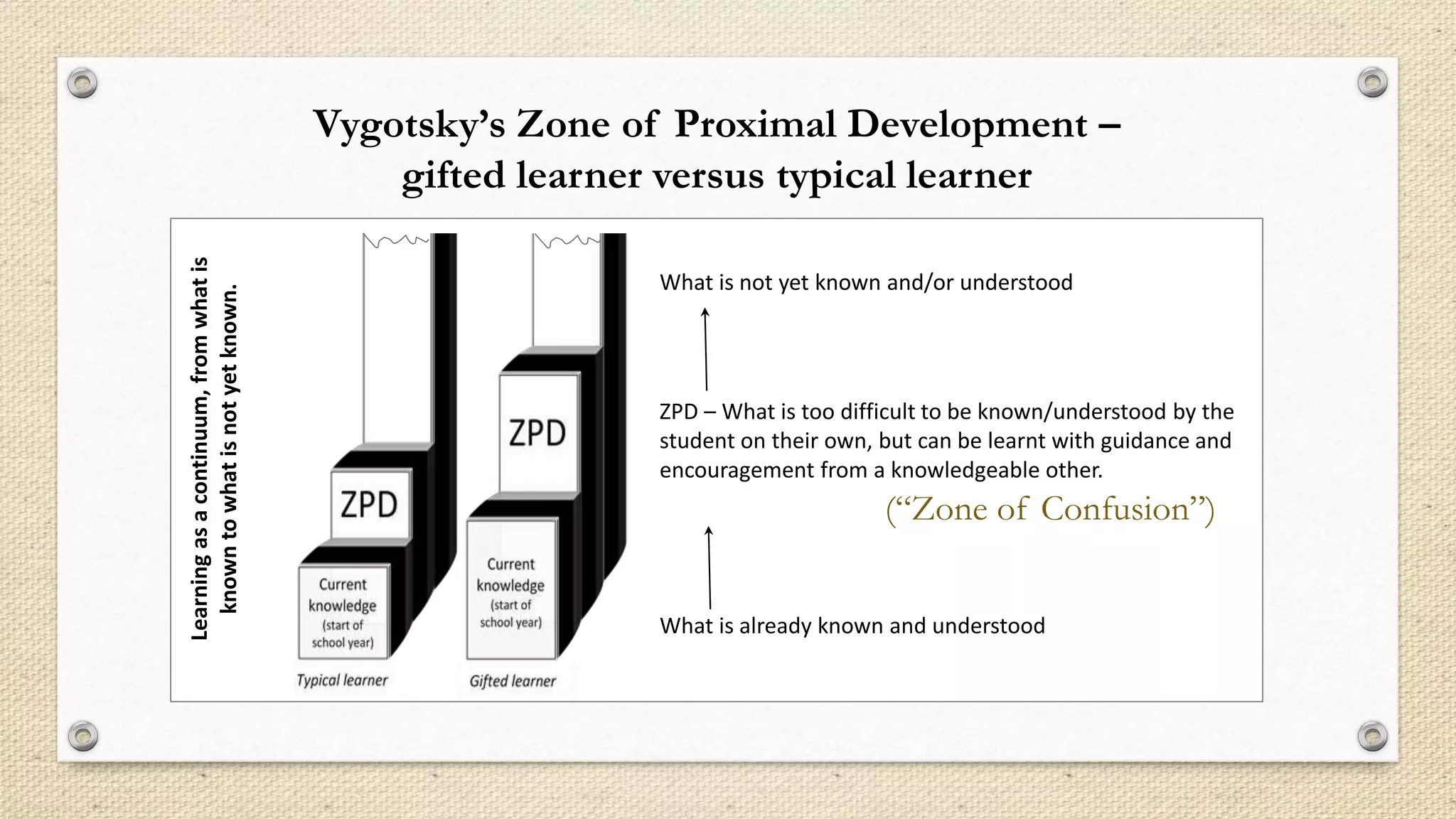
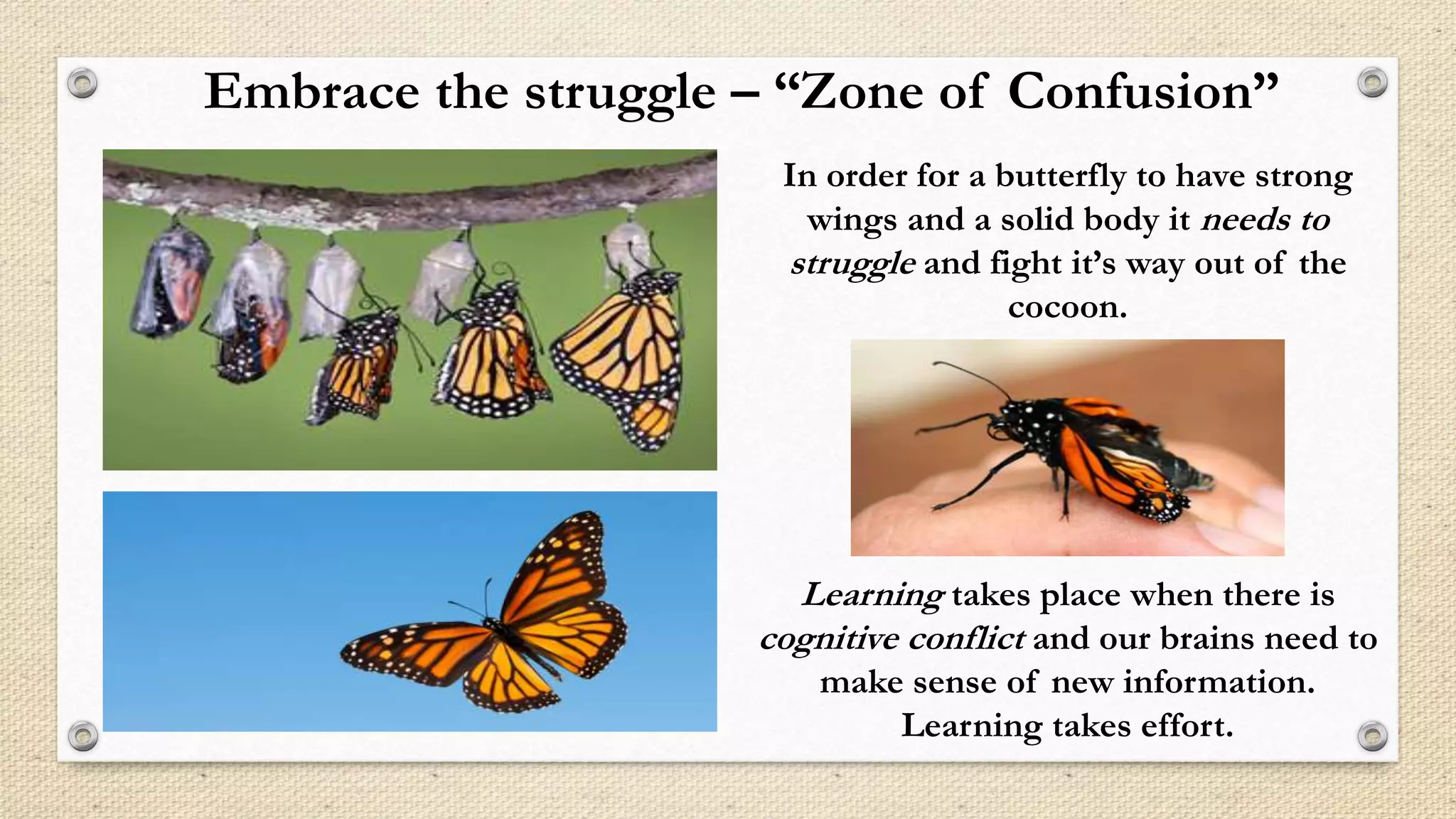
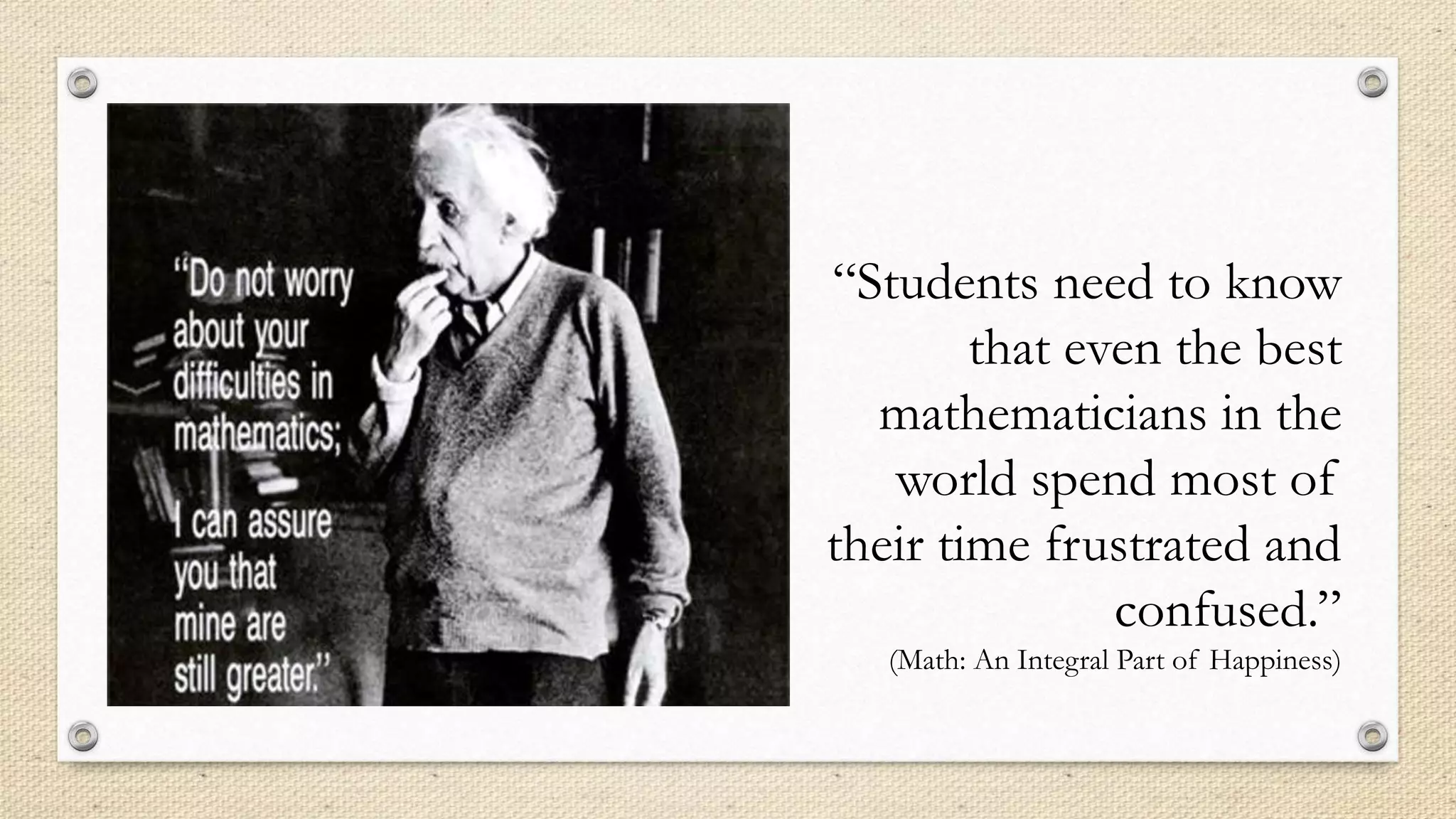

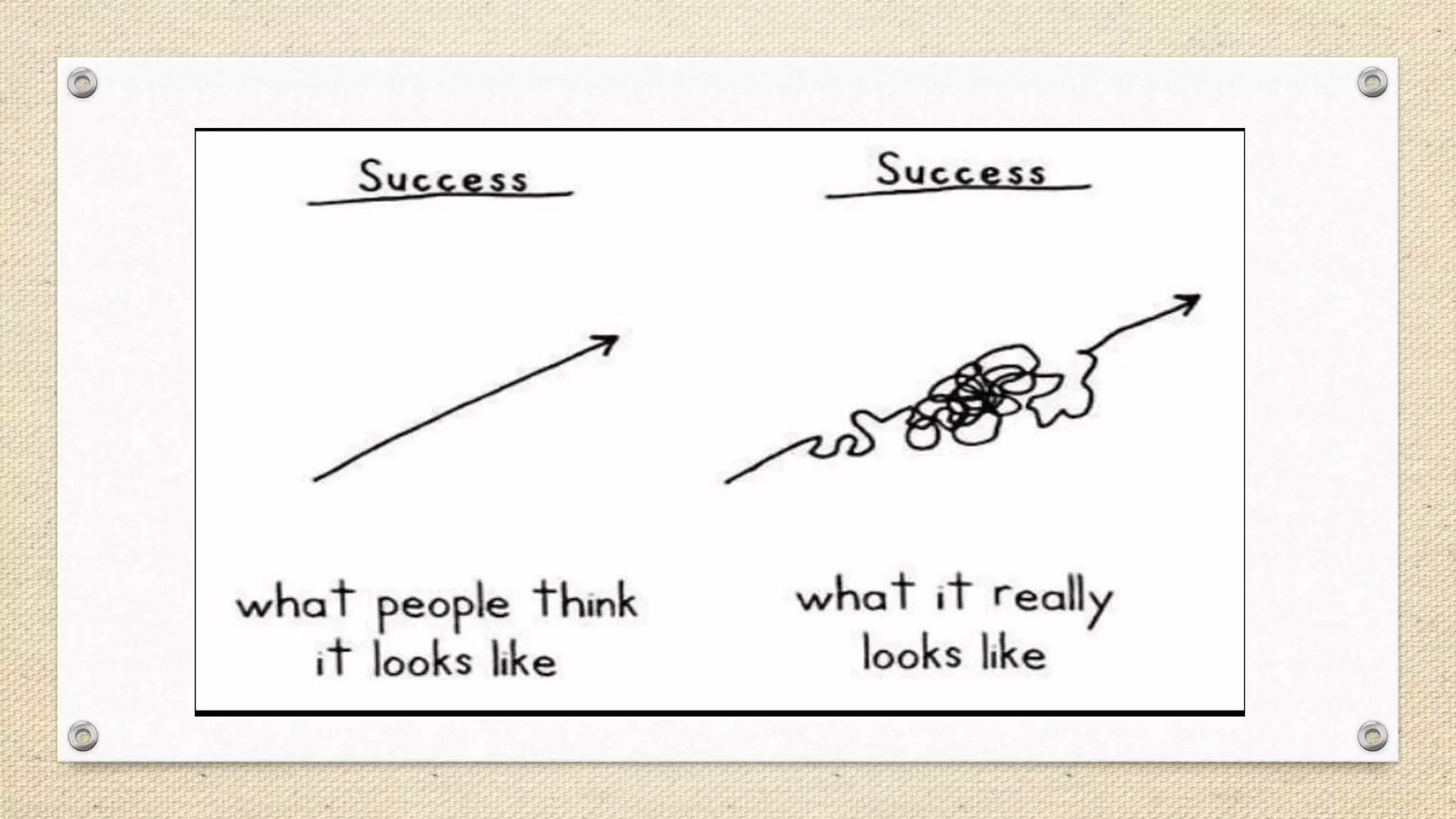
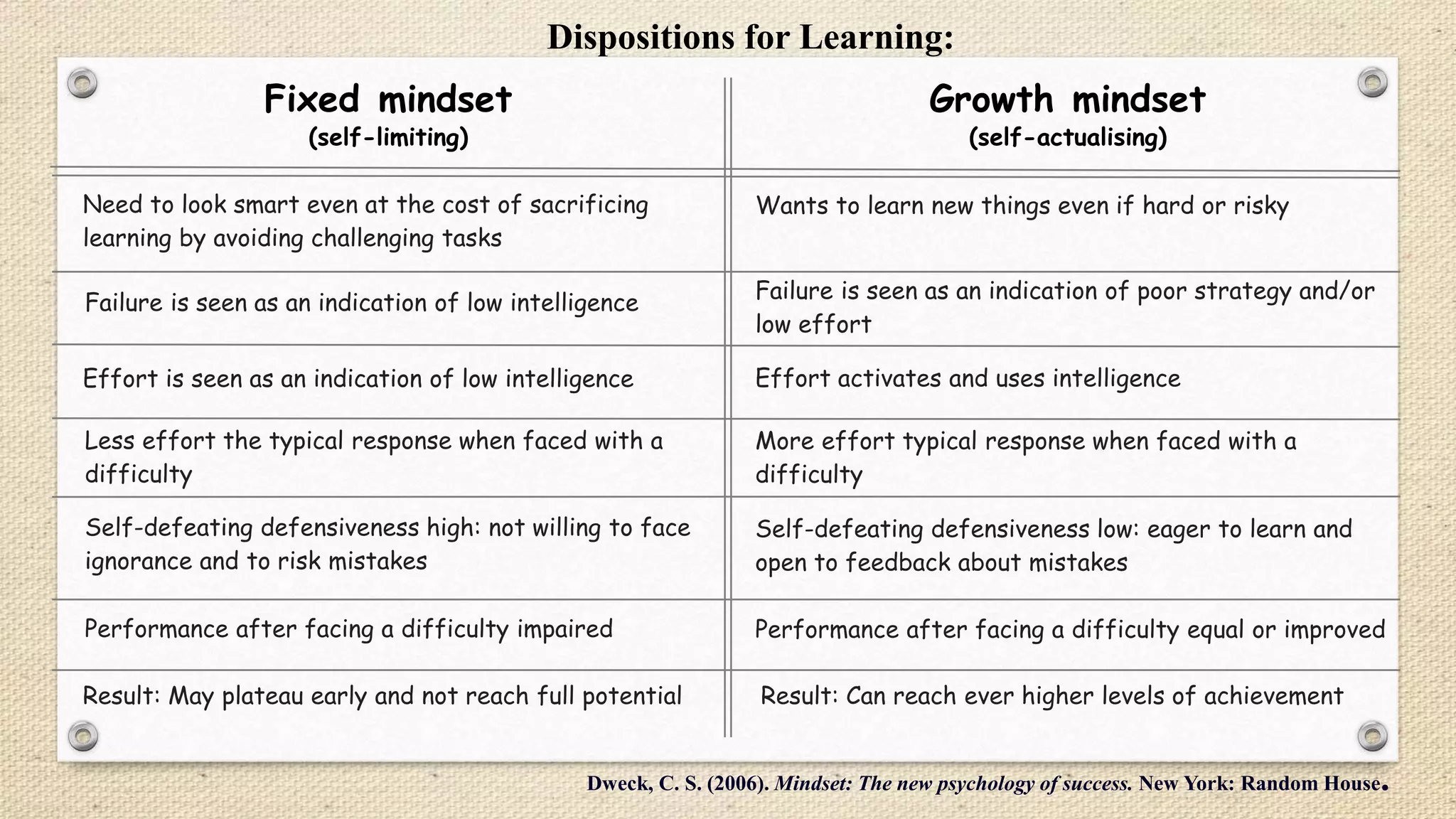
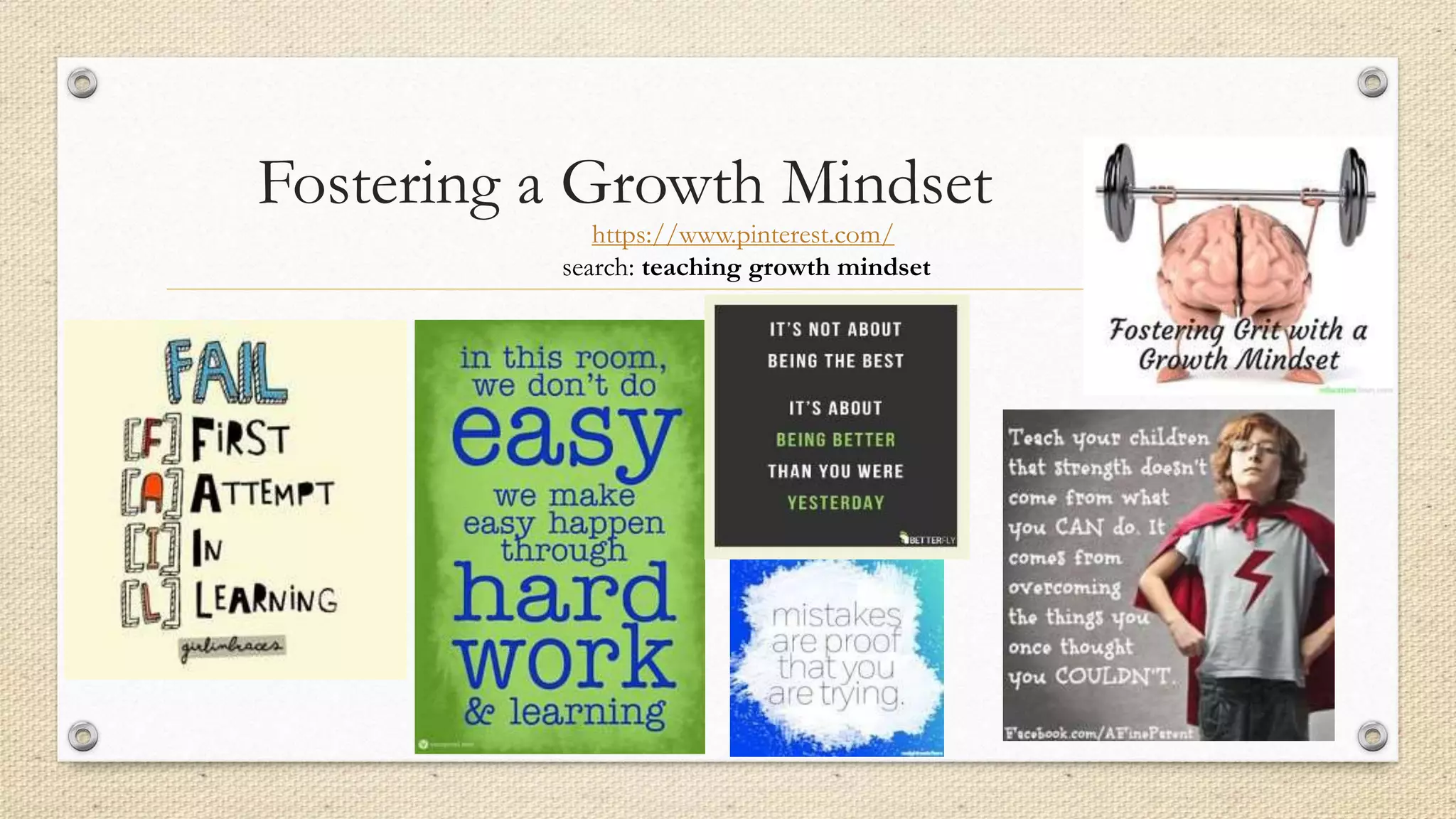
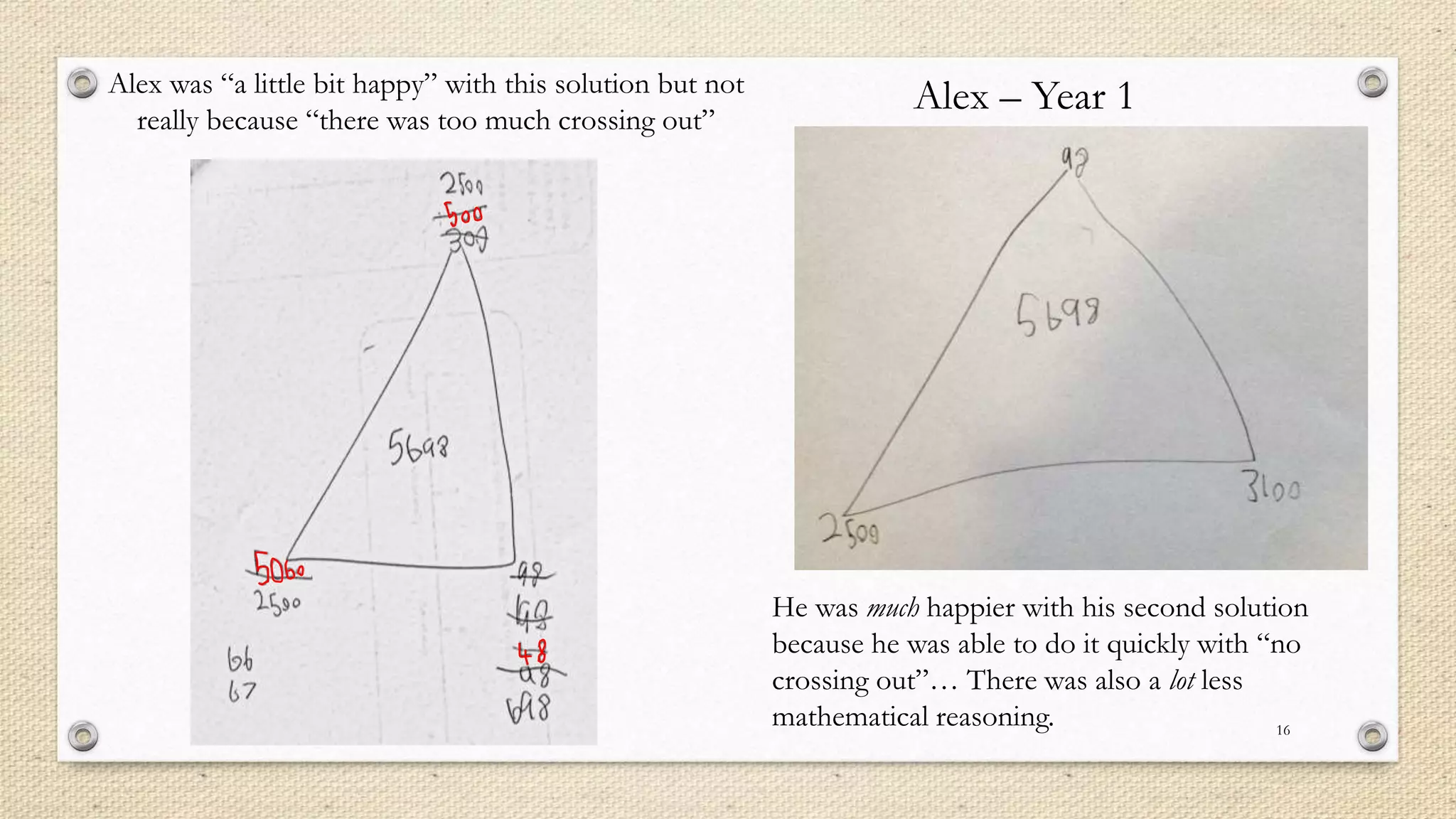
![1. The learning process, when perceived as incorrect, was highly distressing.
[Gifted children are often hypersensitive - they not only learn differently they also often feel
differently (Sword, 2008). Dabrowski & Piechowski (1977) call this ‘over-excitabilities’].
2. Any subsequent learning opportunities in that lesson were destroyed..
12 = 1x12
12x1
2x6
6x2
3x4
4x3
12 = 3x3+3
2x3+2x3
18=3x5+3 15=3x3+3+3
Sammy – Year 3](https://image.slidesharecdn.com/advocatingforthemathematicallyhighlycapable-160815053921/75/Connect-with-Maths-Advocating-for-the-mathematically-highly-capable-17-2048.jpg)
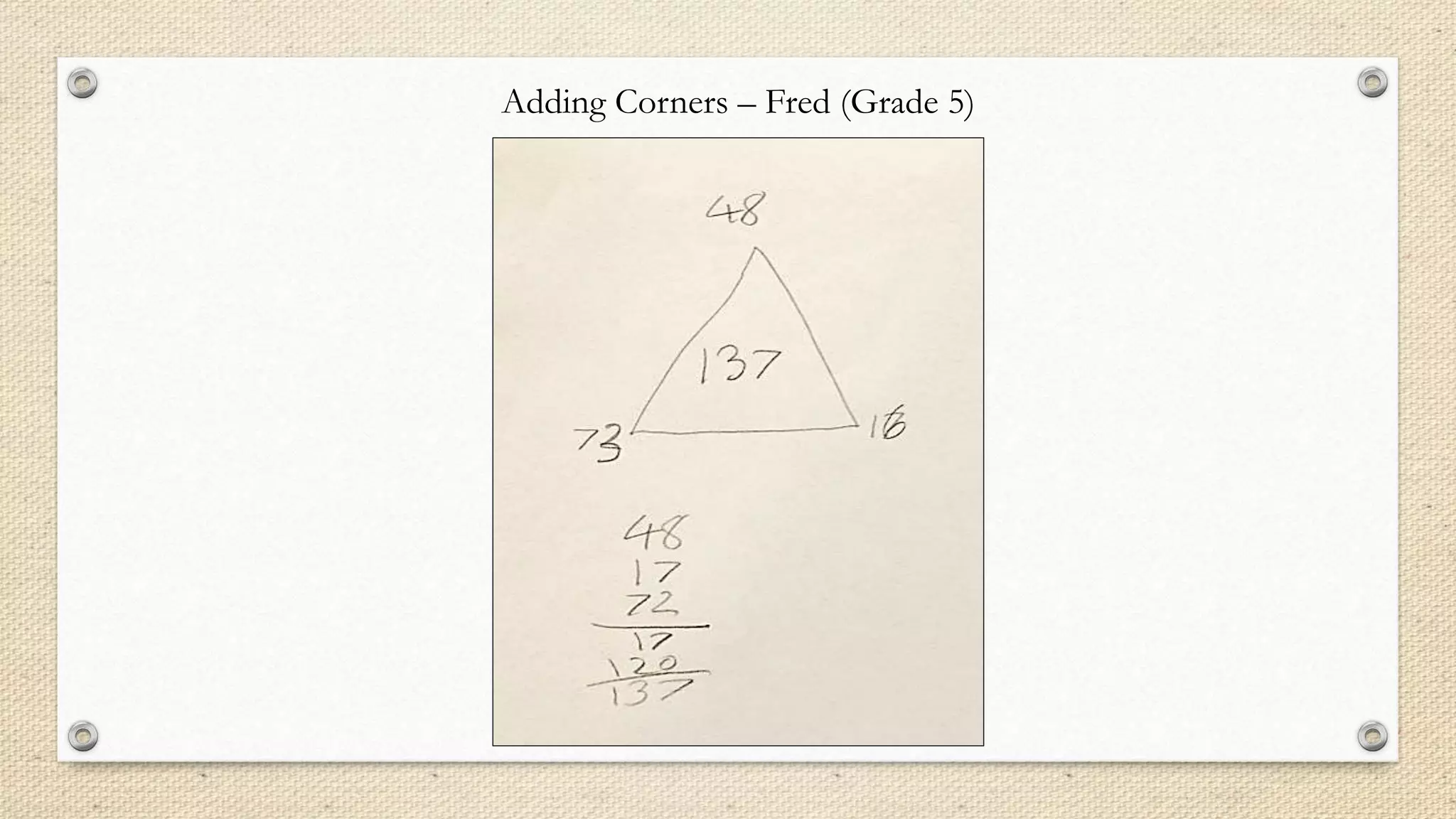
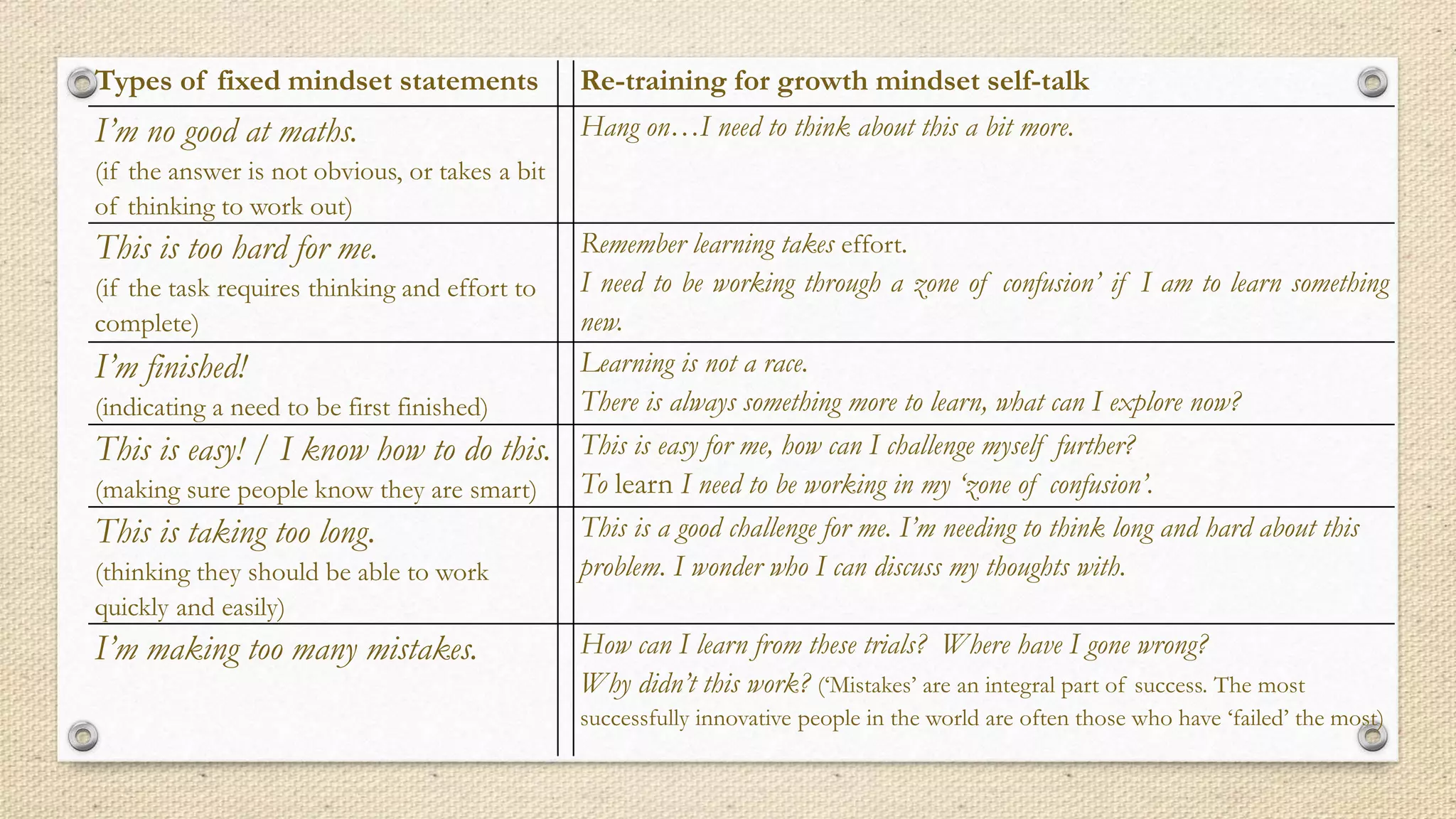
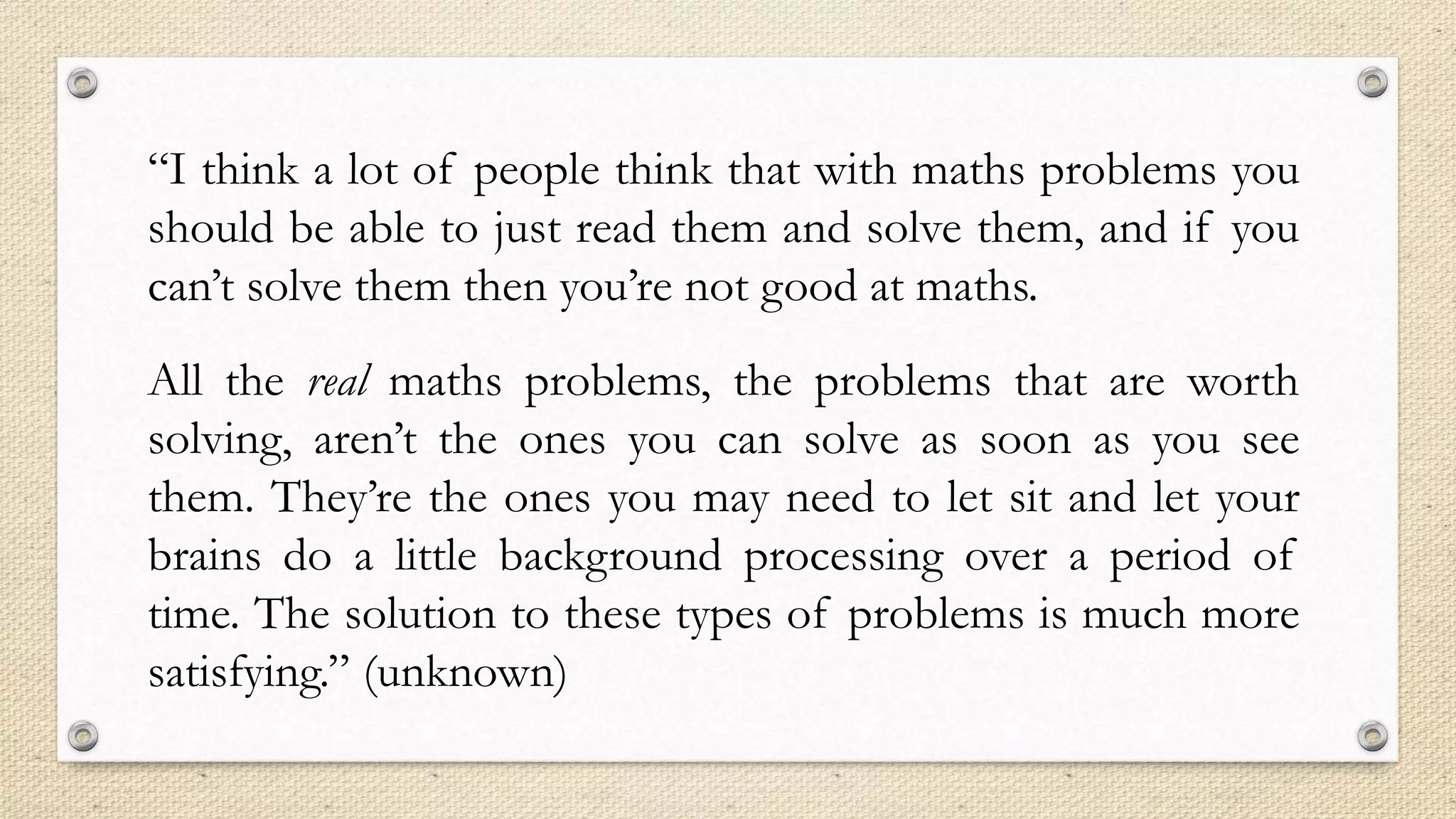
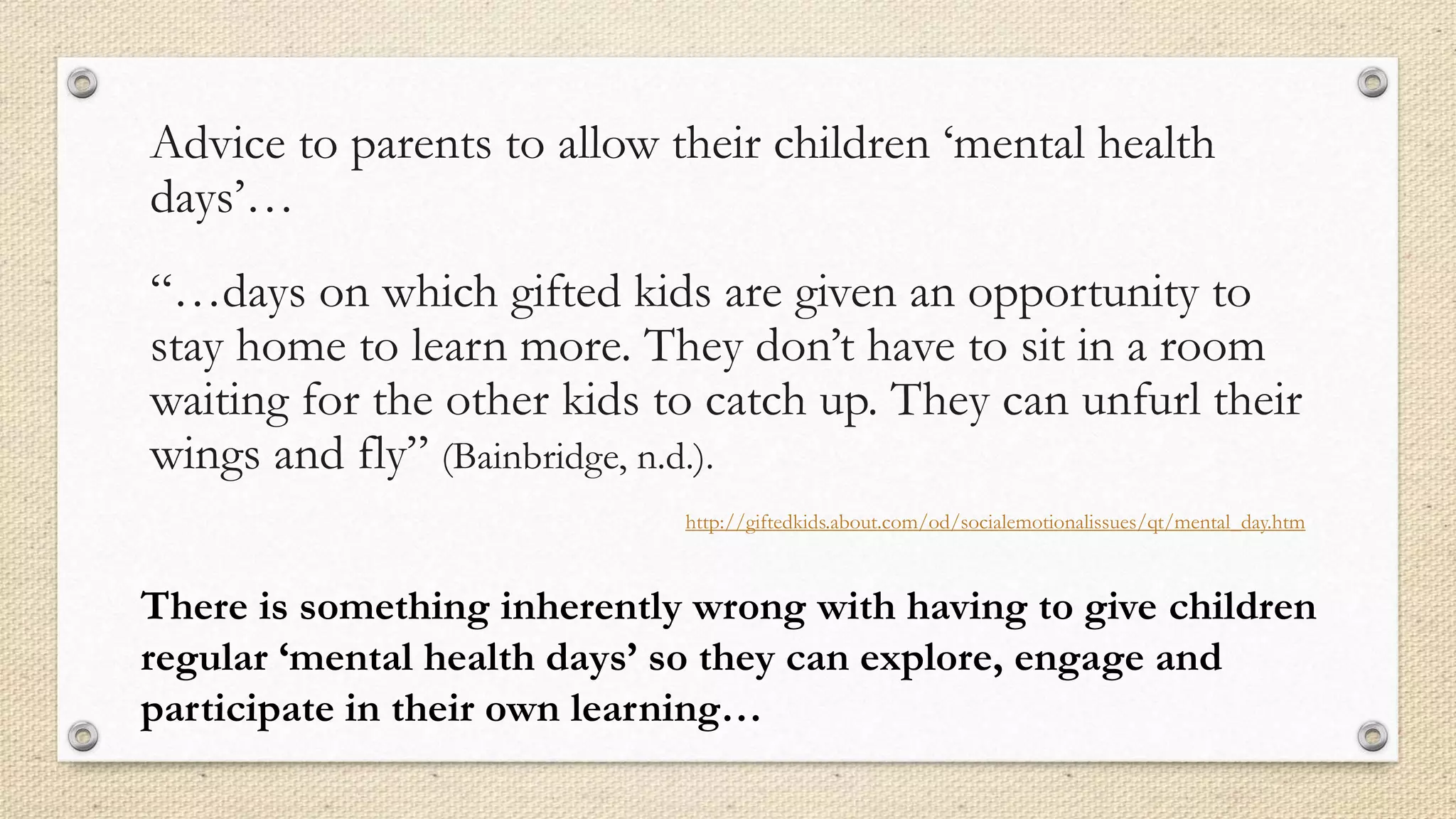
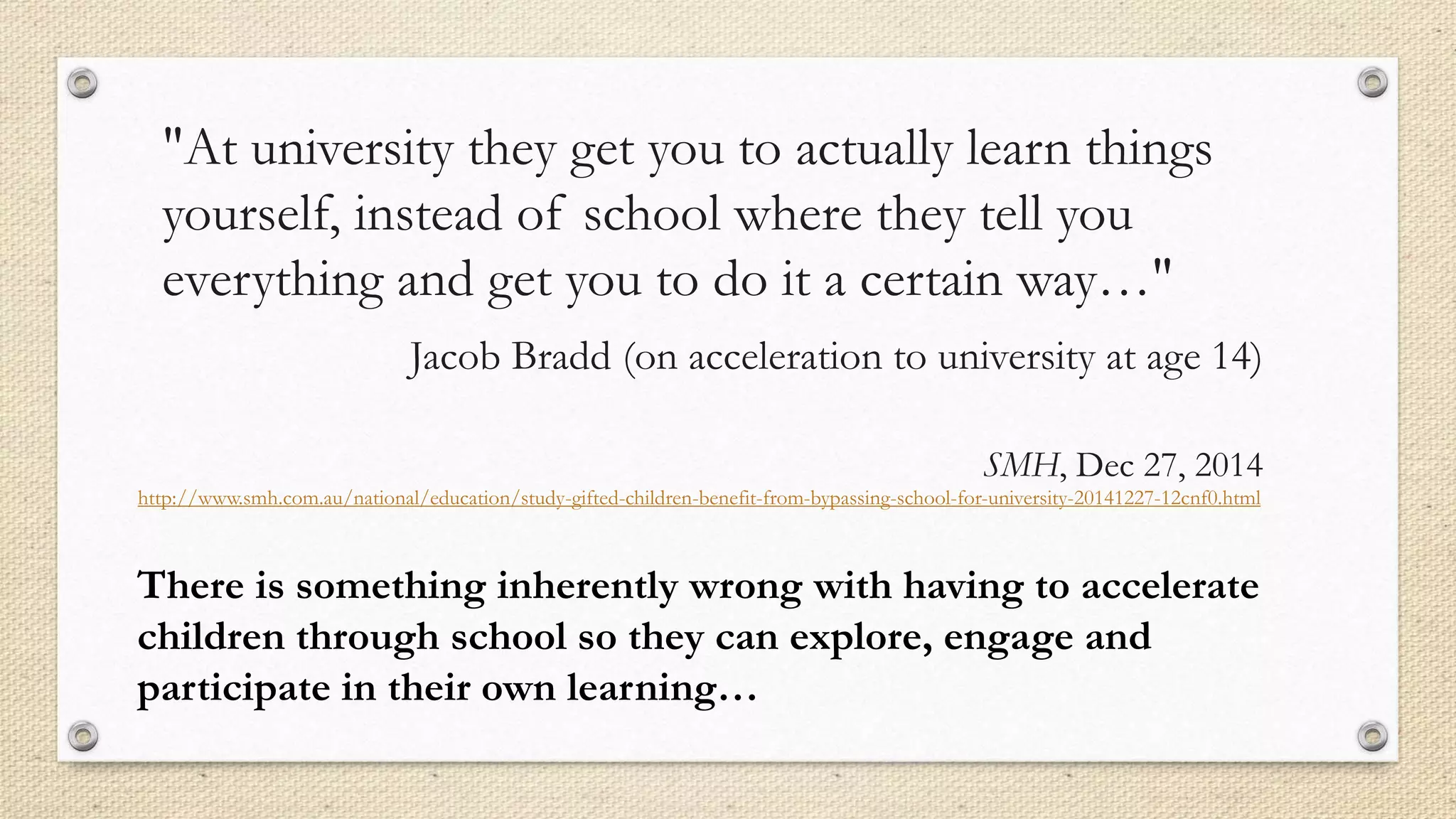
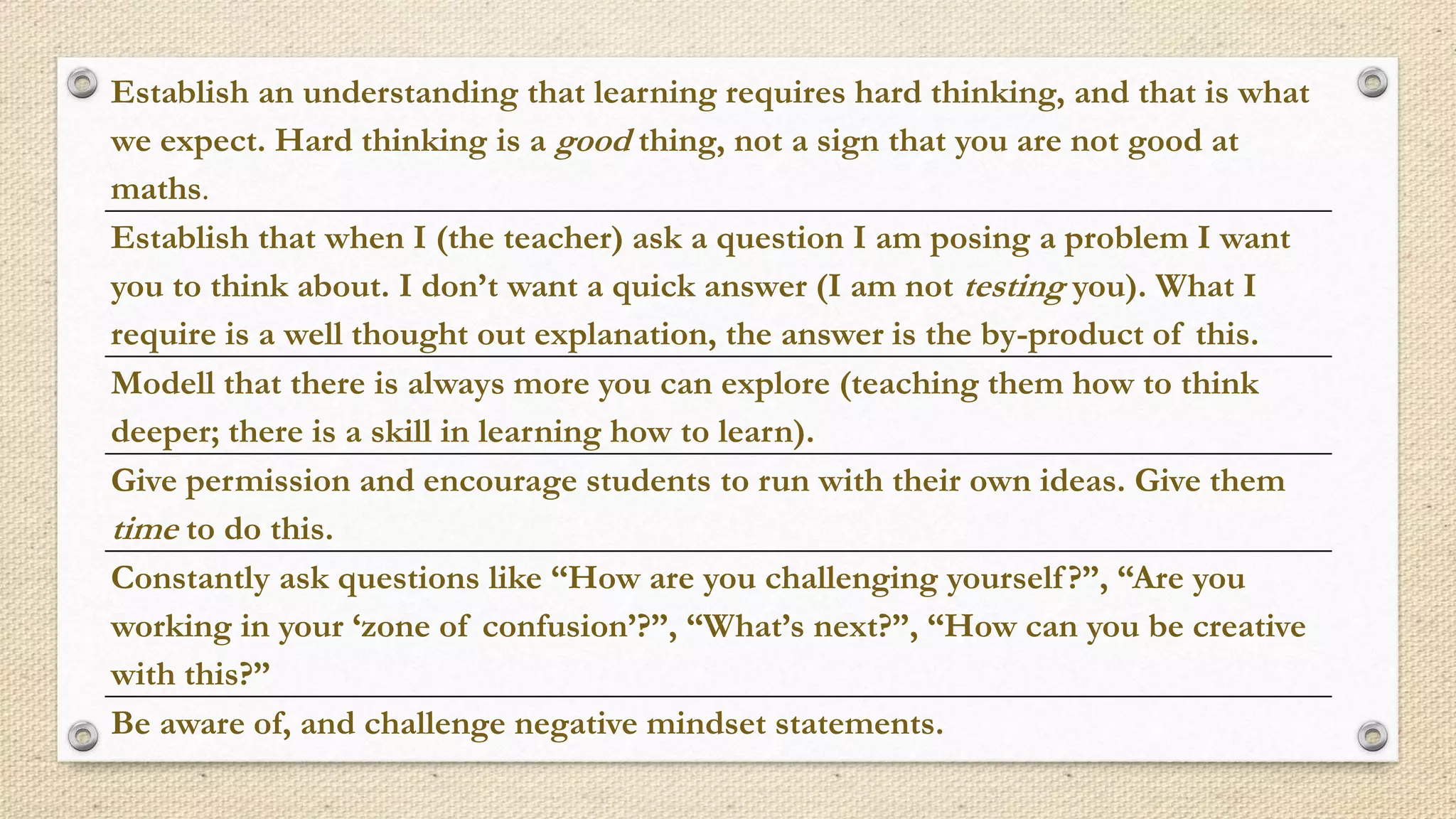
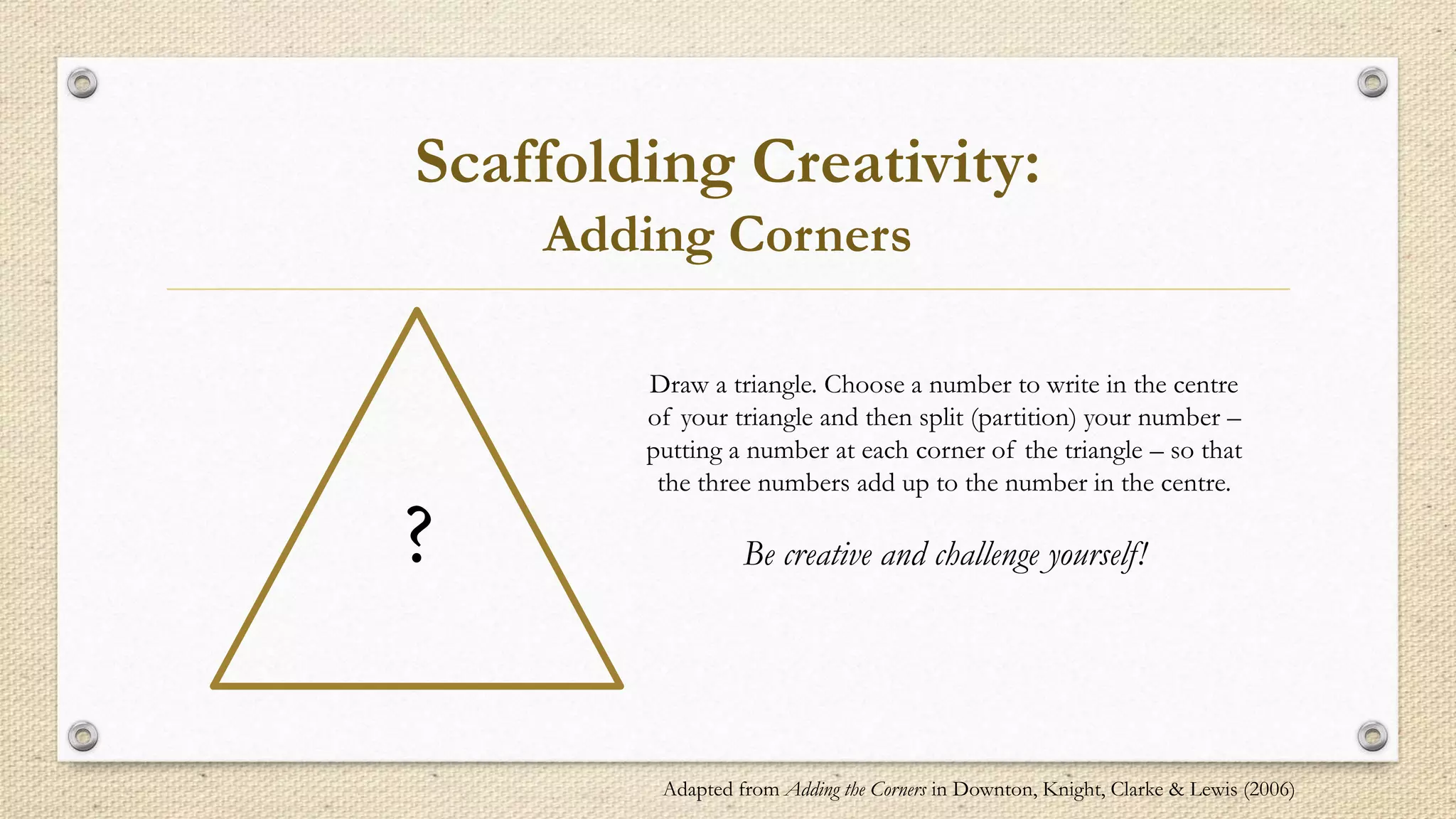
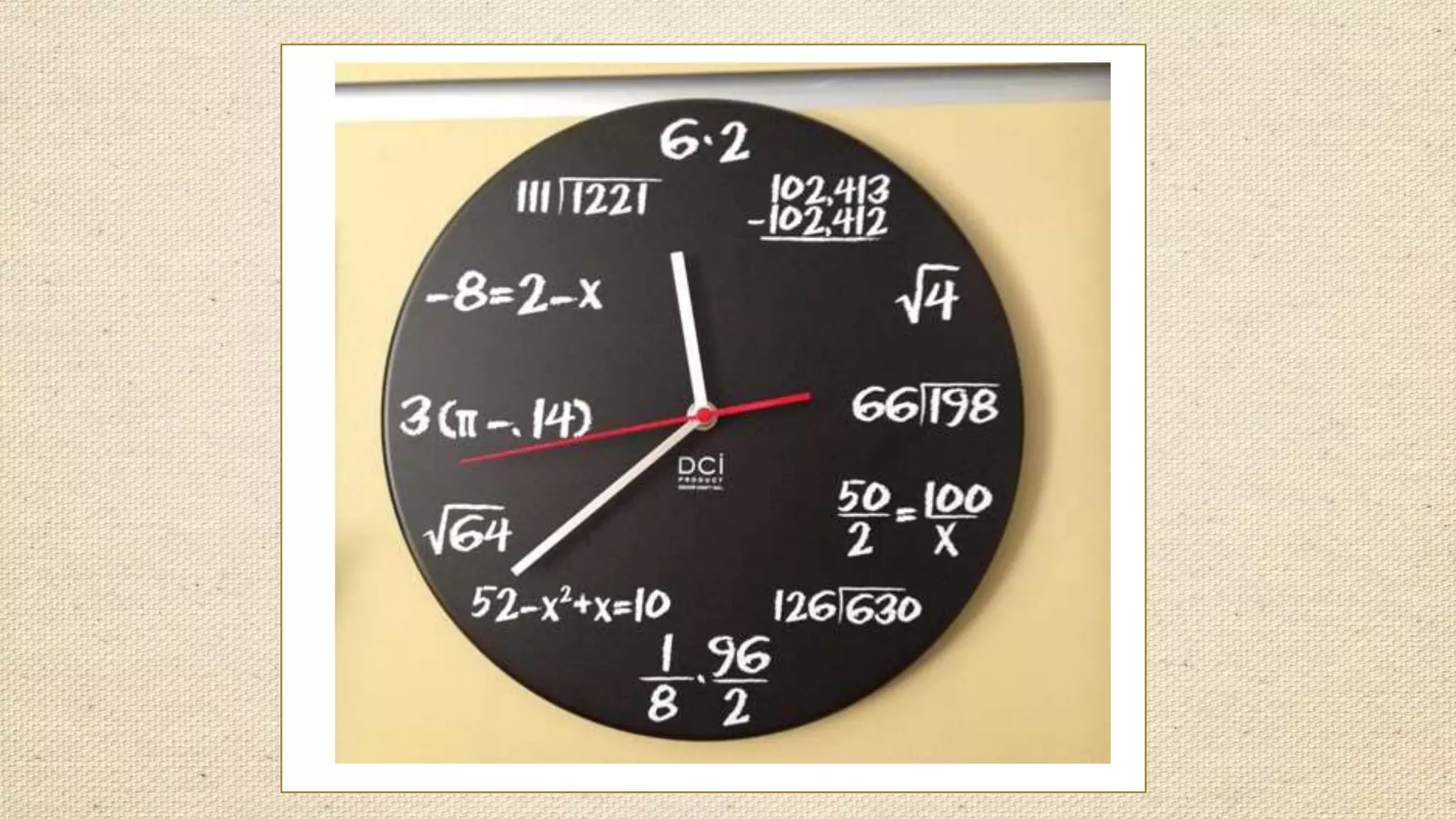
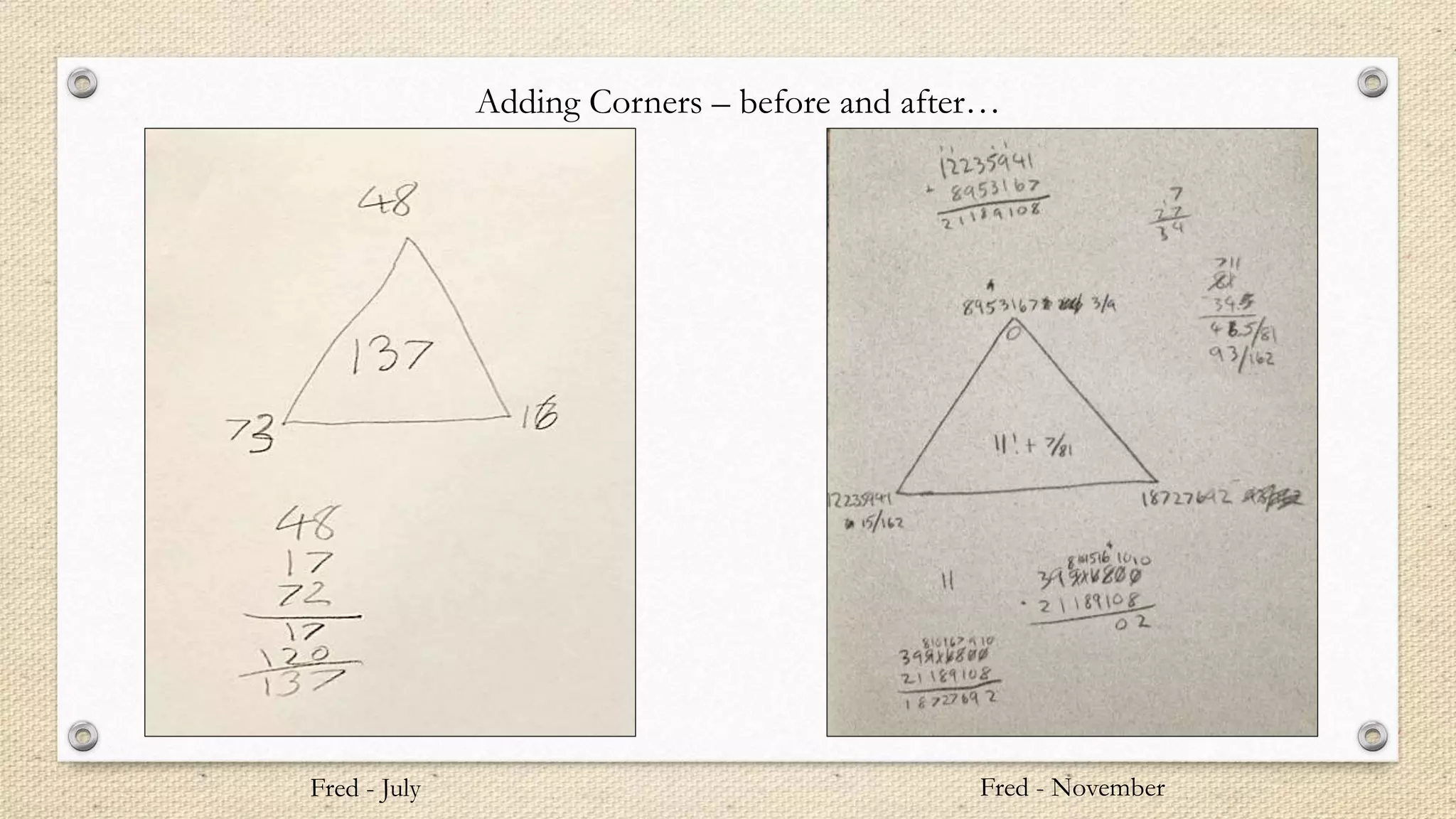
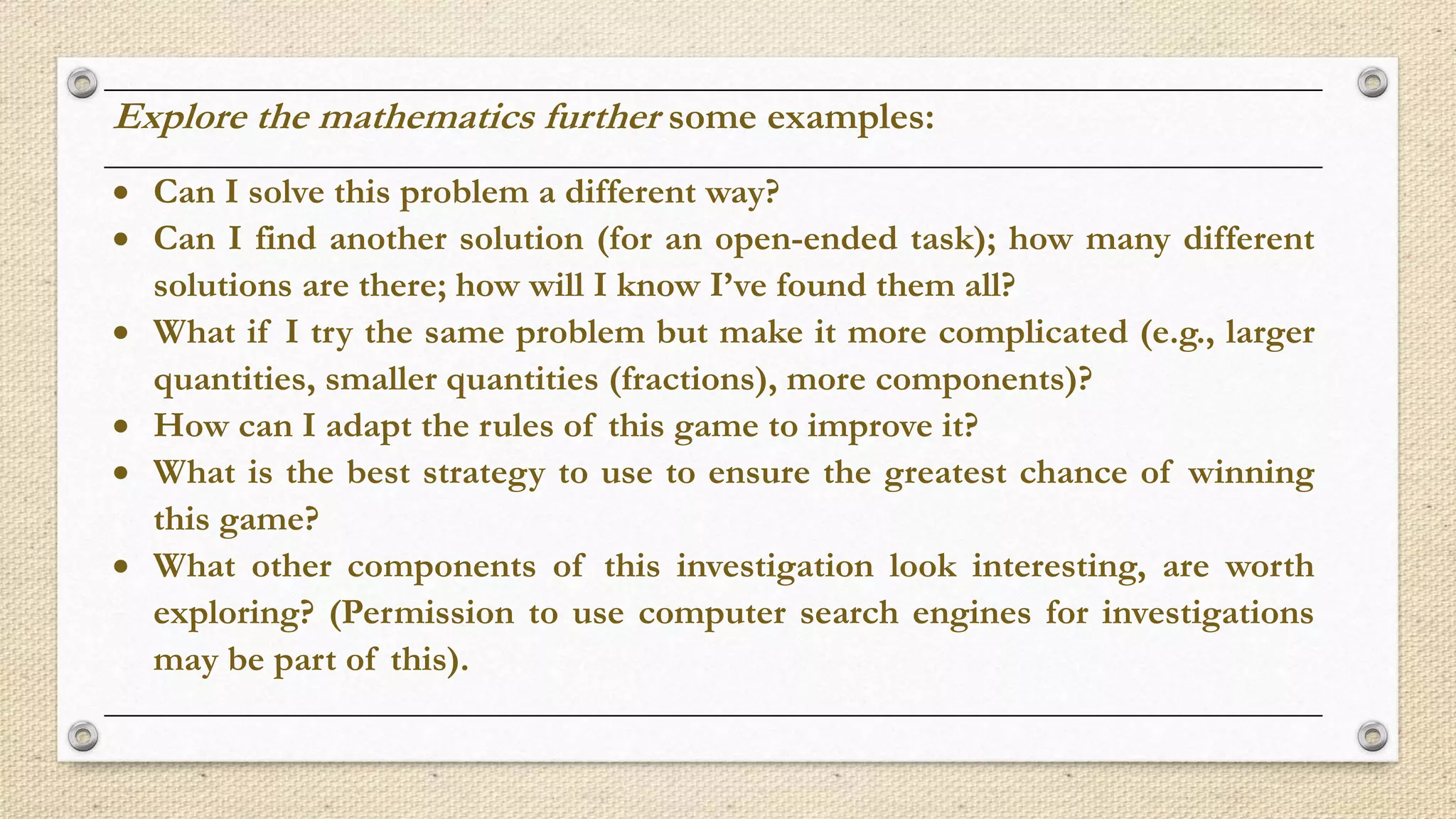
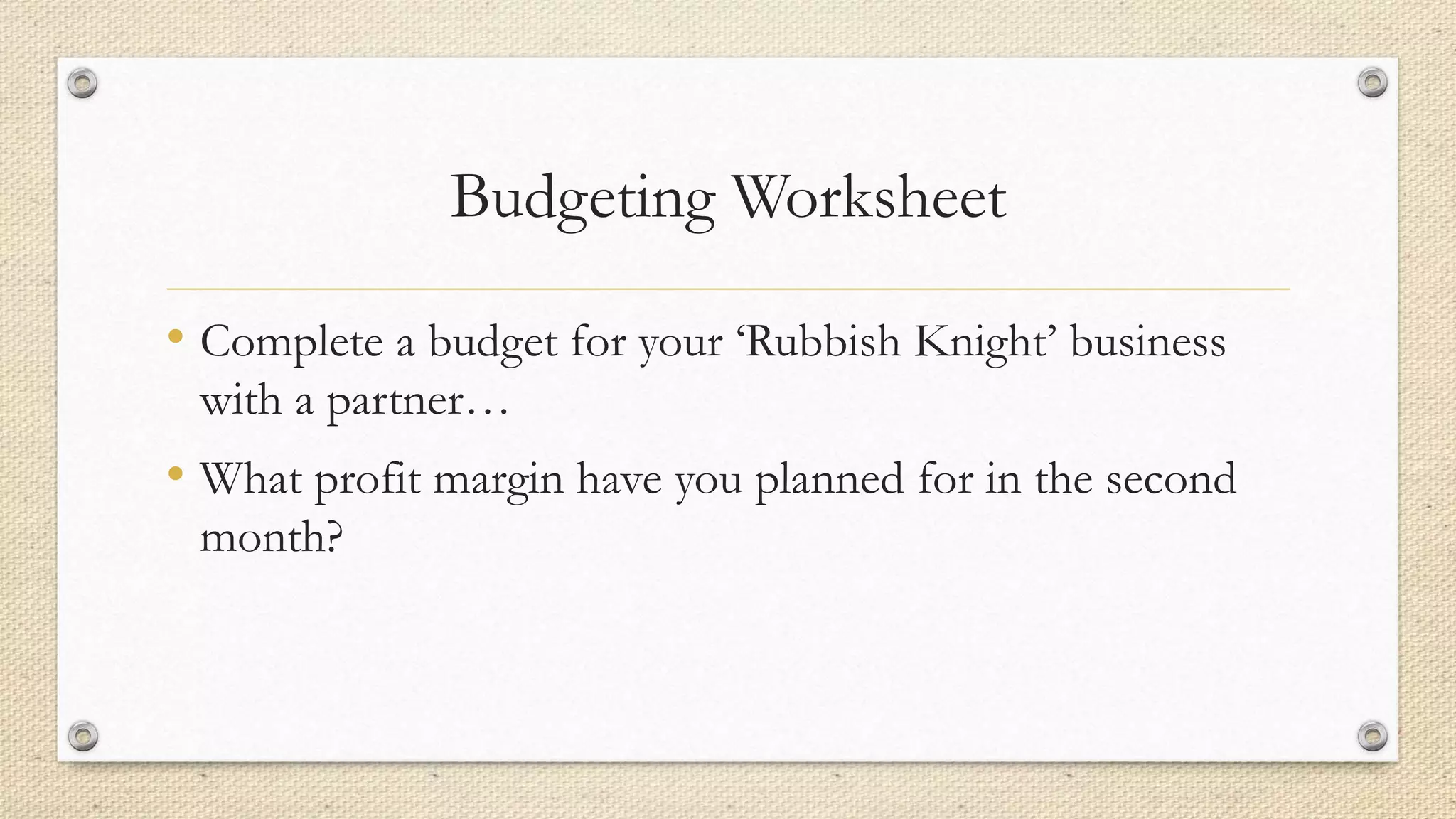

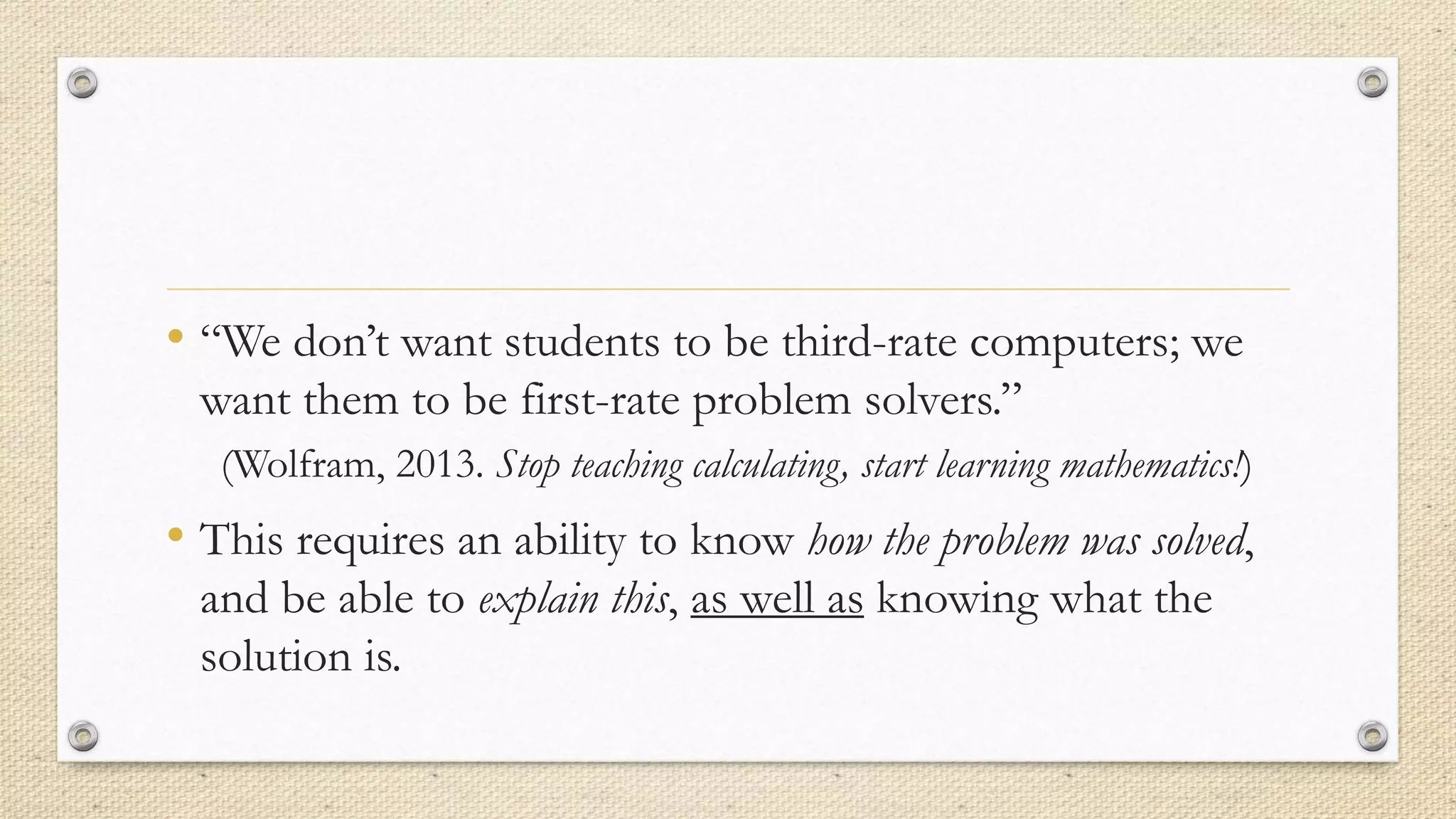
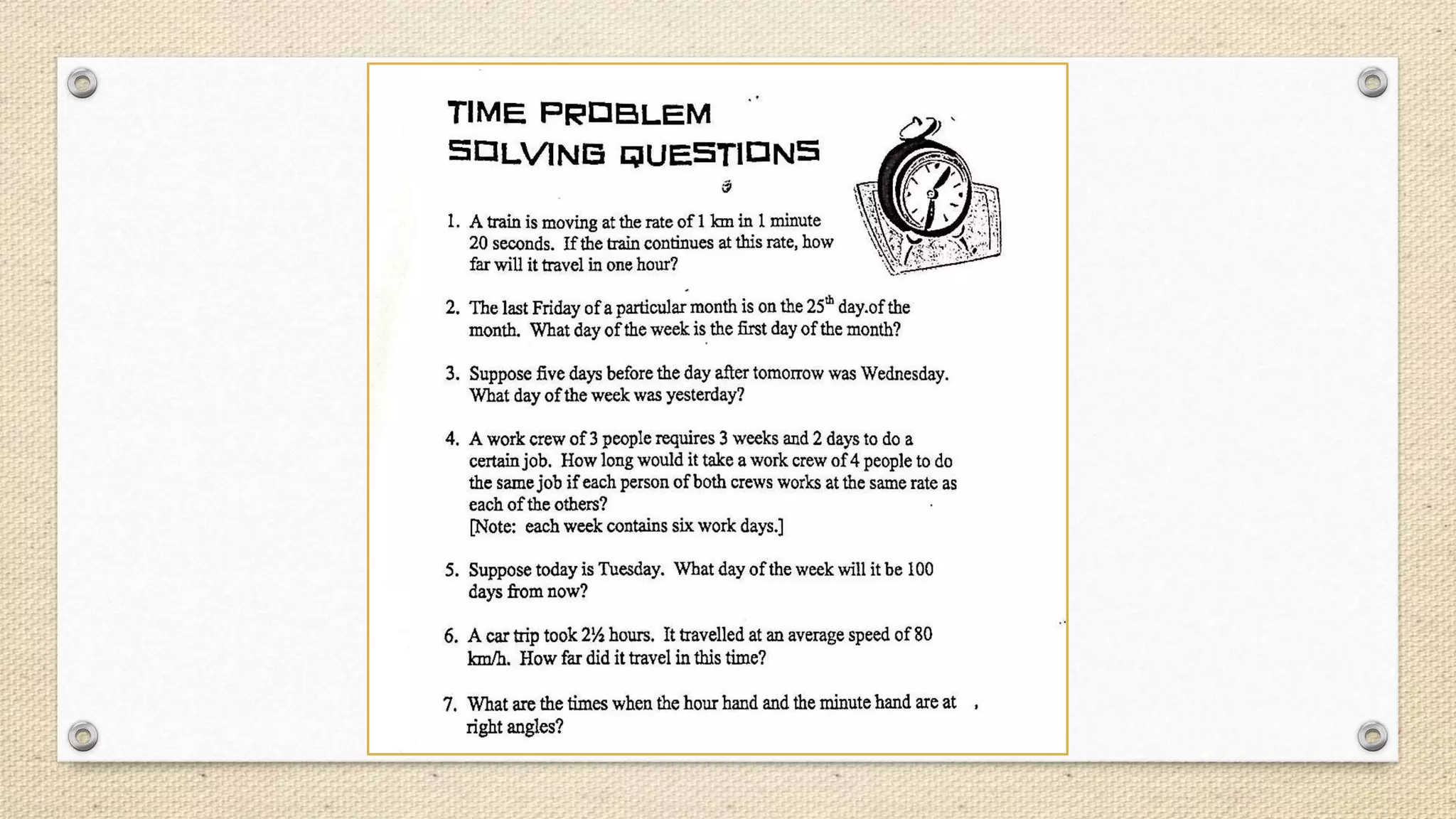
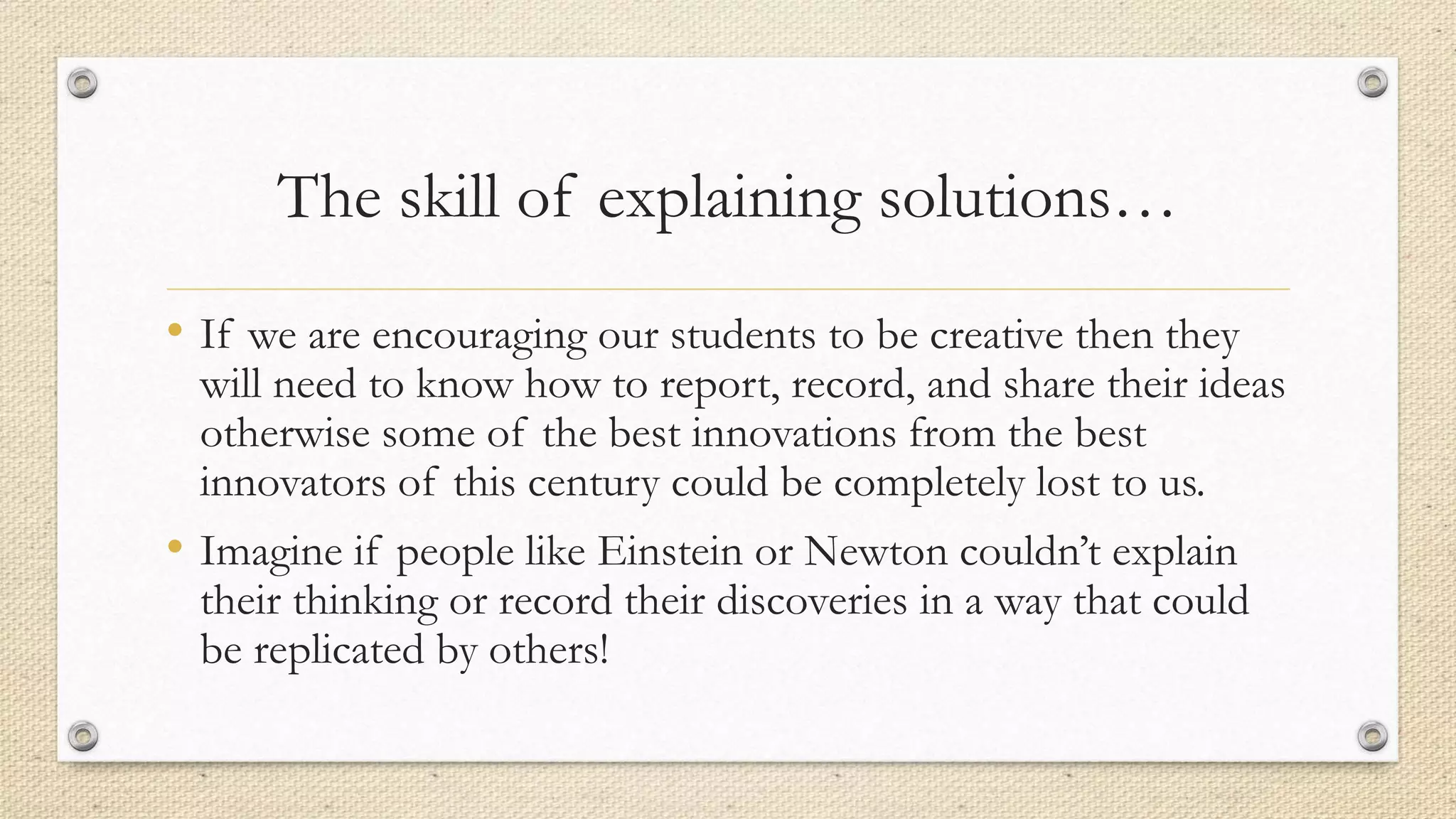
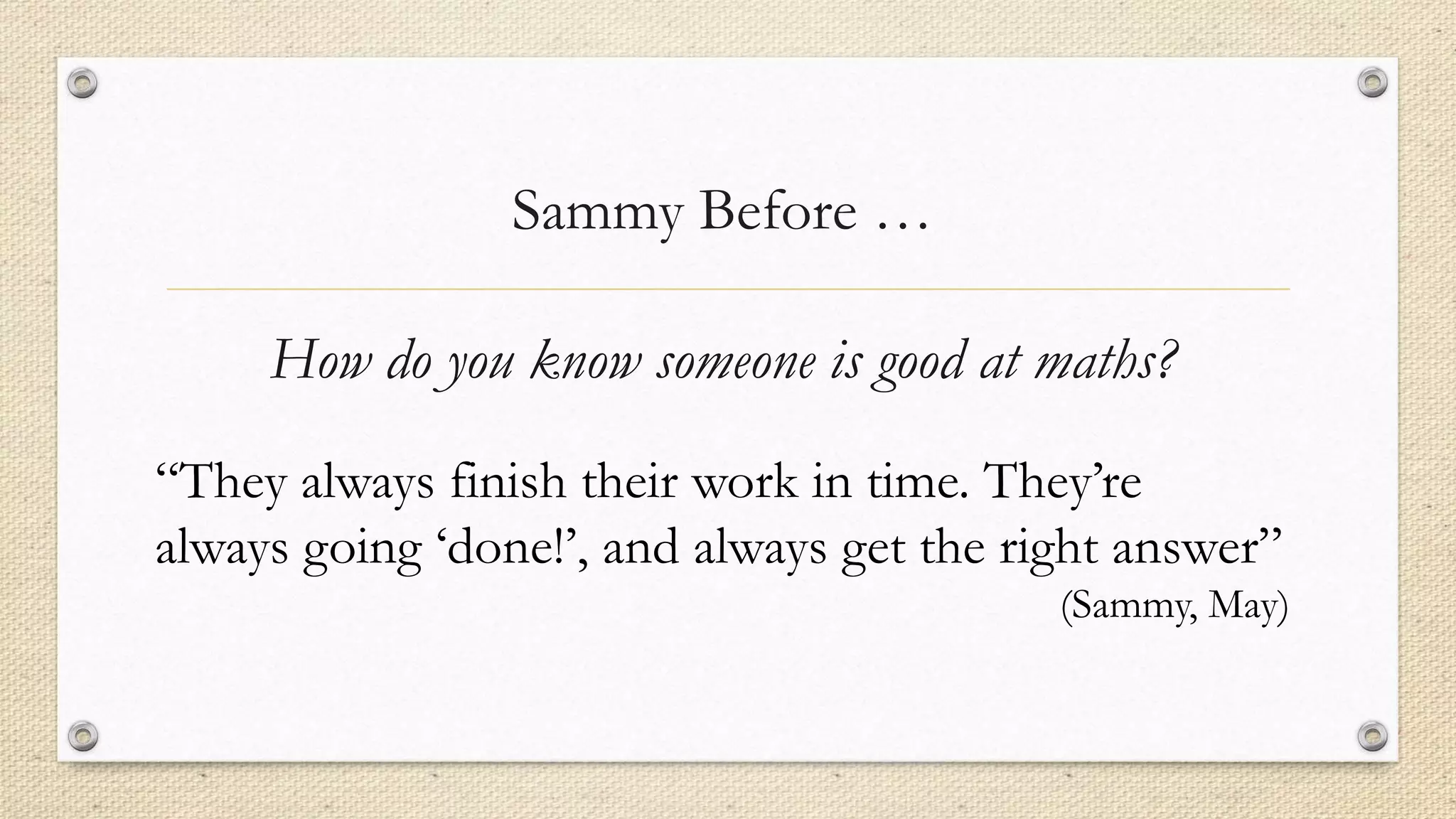
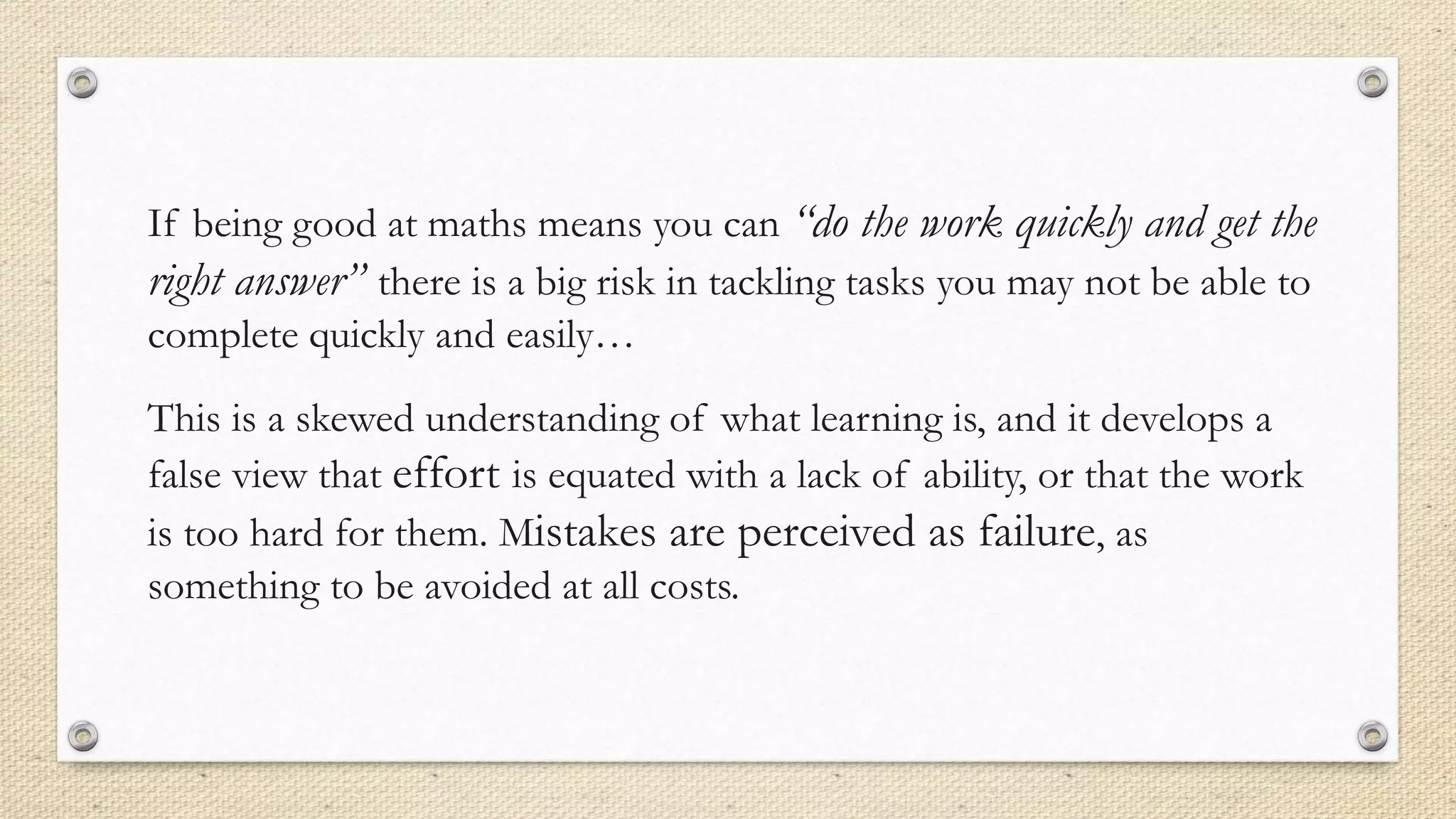
![Sammy After…
• “I know I'm good at maths because I did that
[pointing to a task she’d persevered with for over
30 minutes] and I thought it was too hard but I
did it!”
Sammy (Nov)](https://image.slidesharecdn.com/advocatingforthemathematicallyhighlycapable-160815053921/75/Connect-with-Maths-Advocating-for-the-mathematically-highly-capable-35-2048.jpg)
